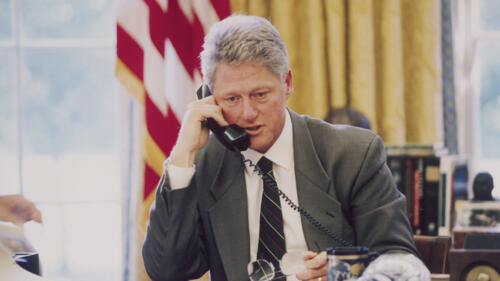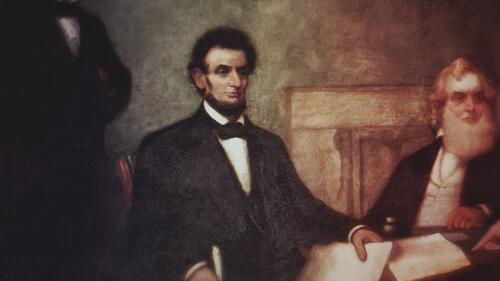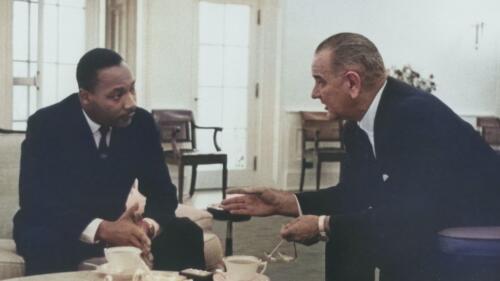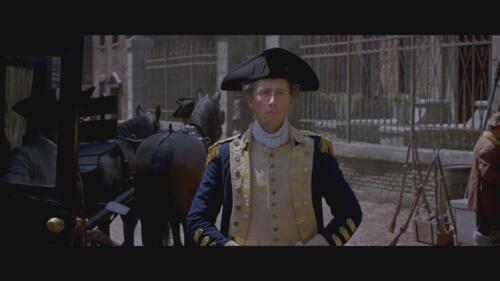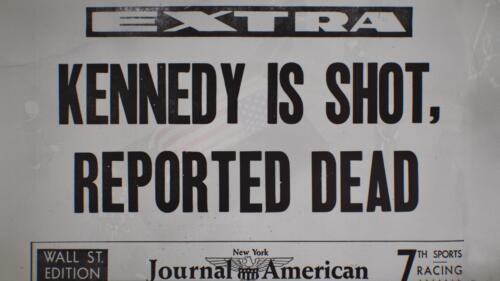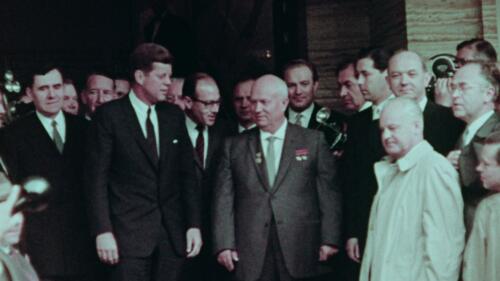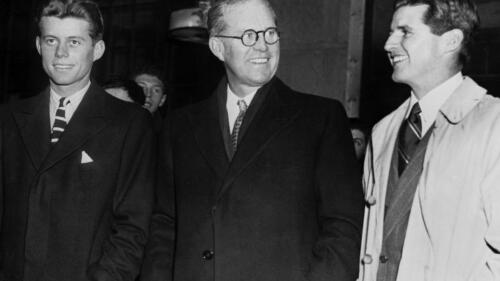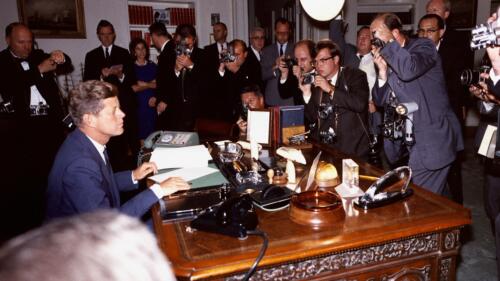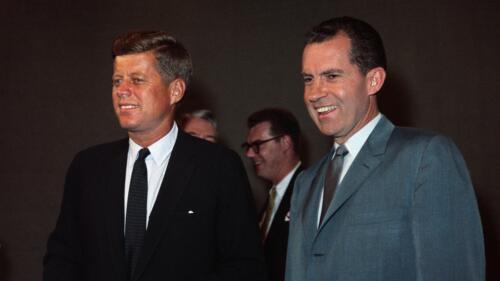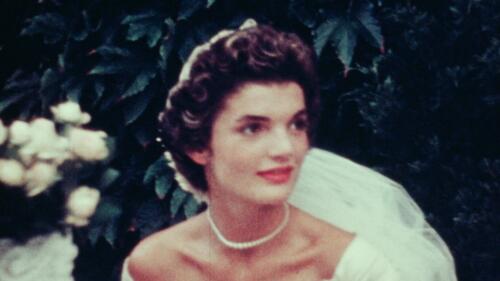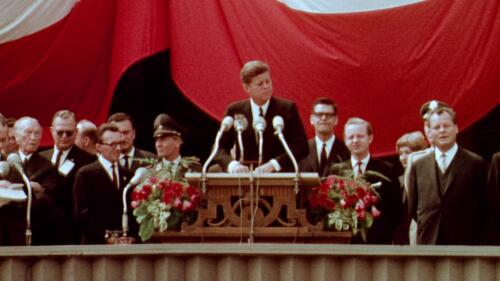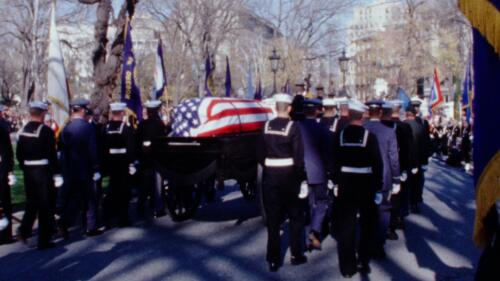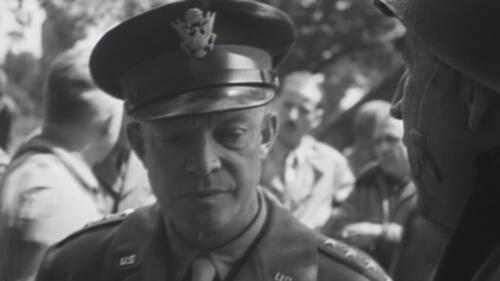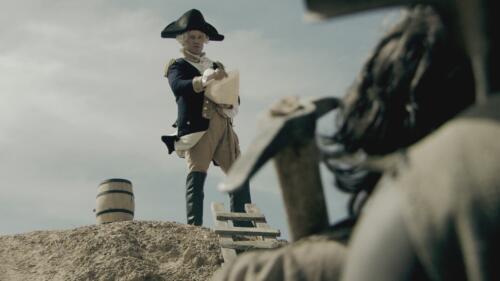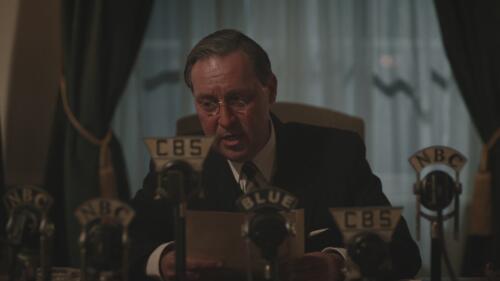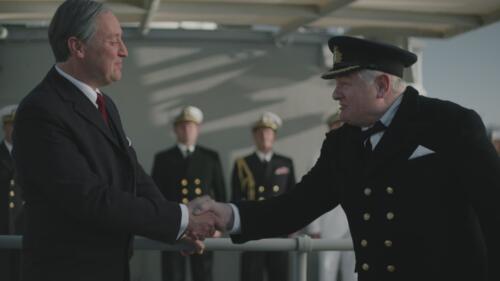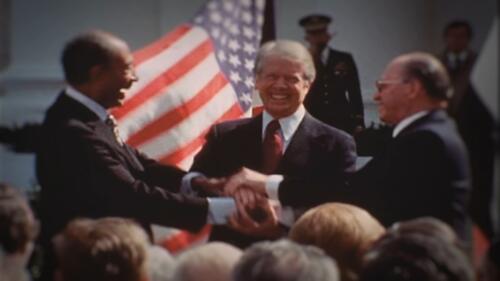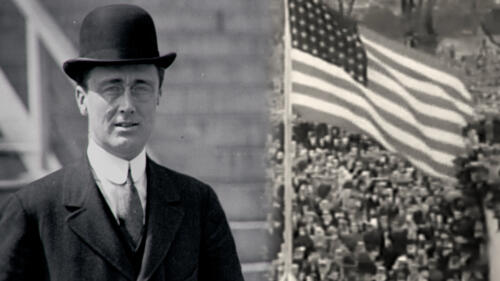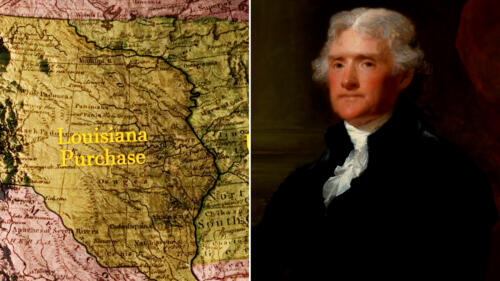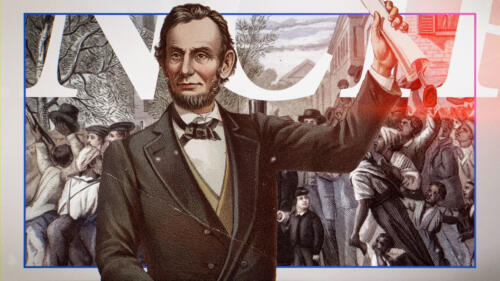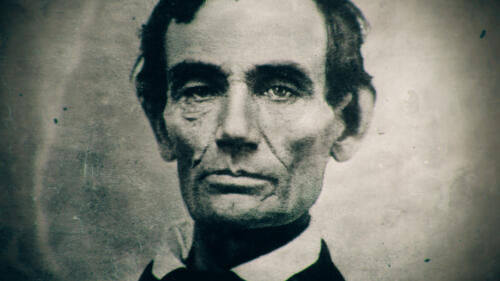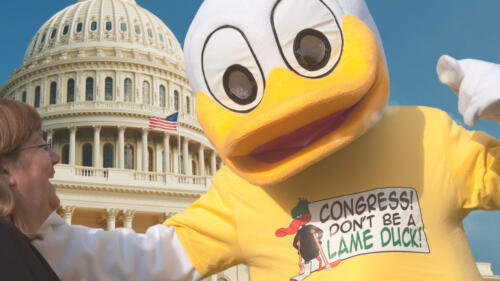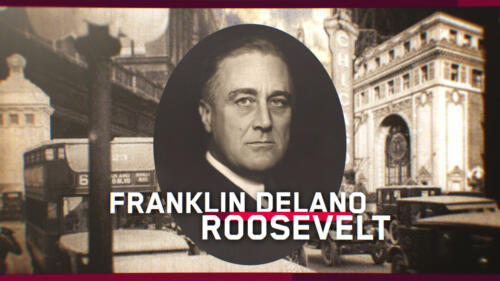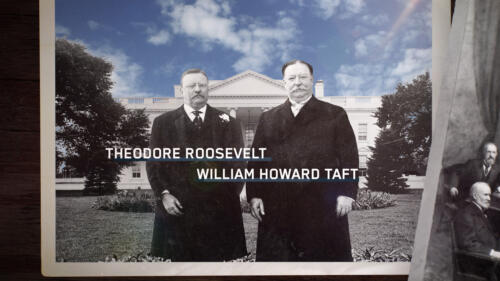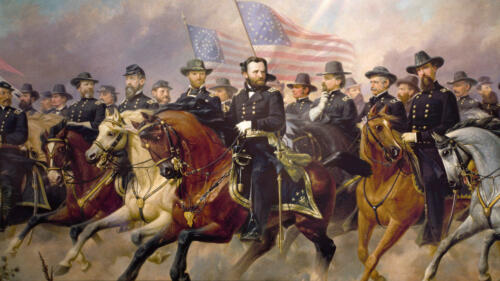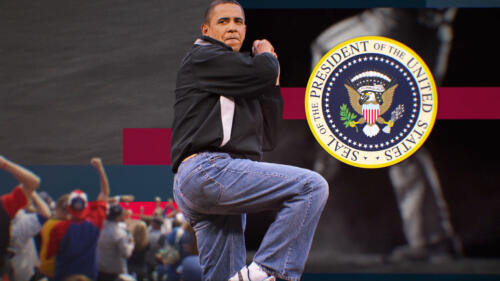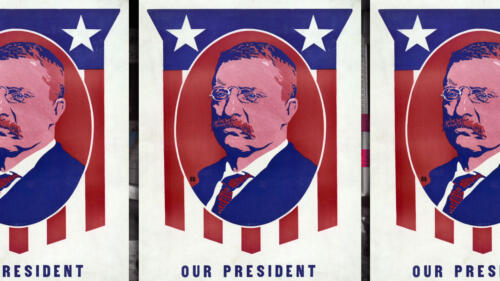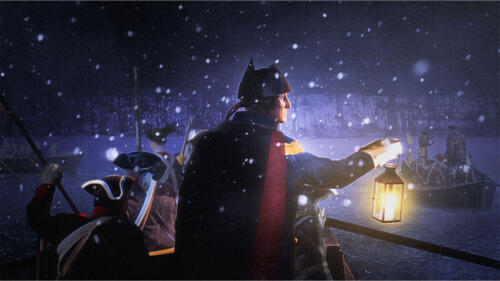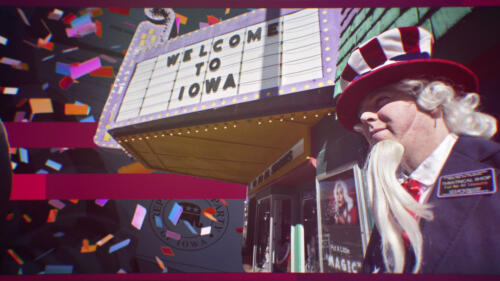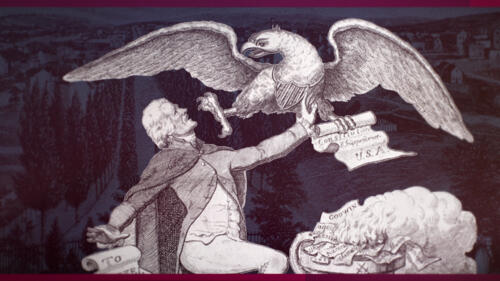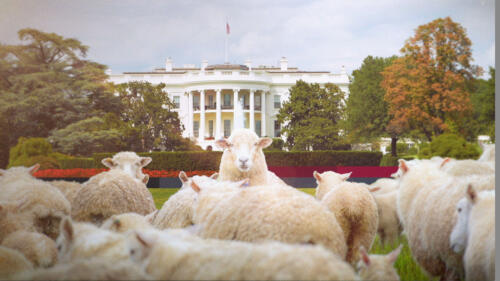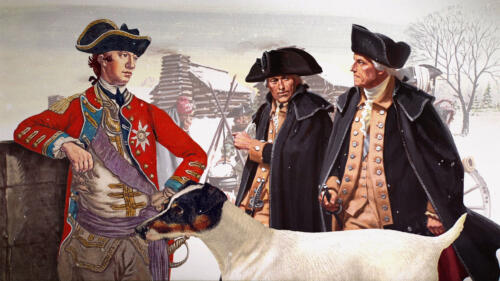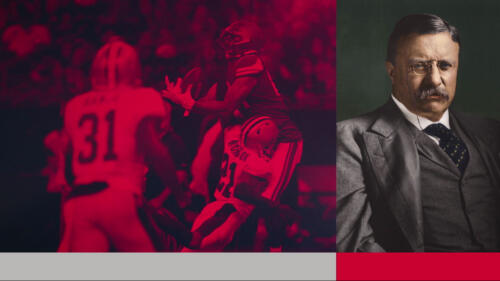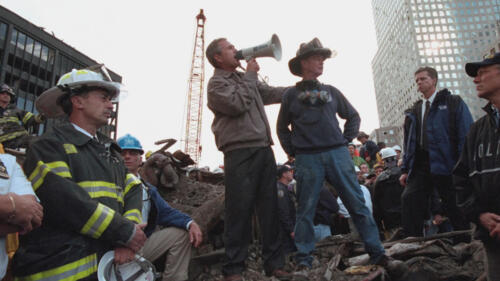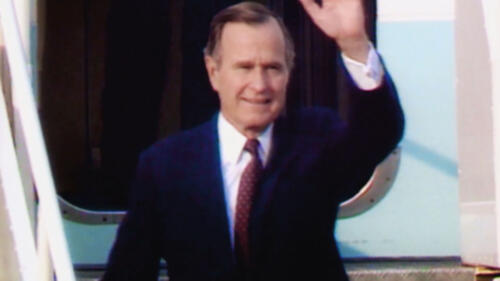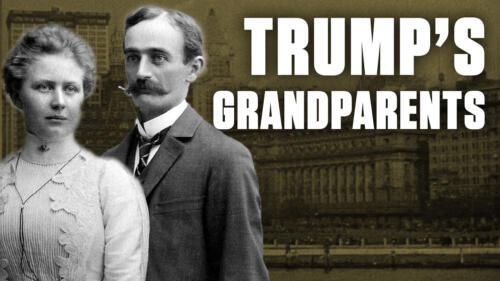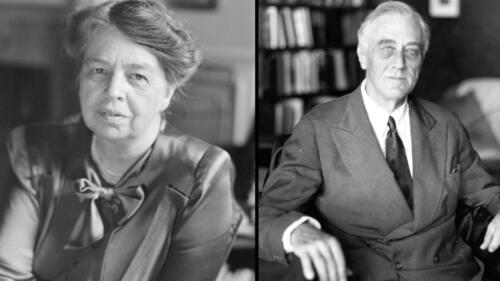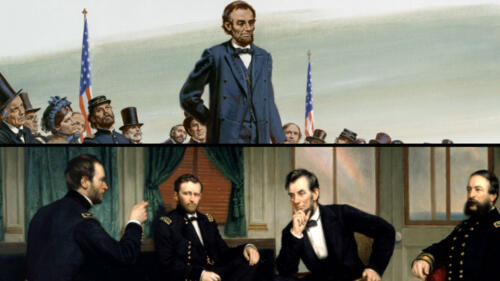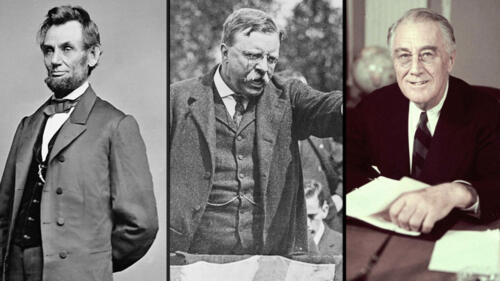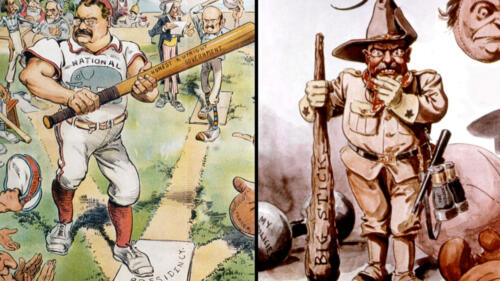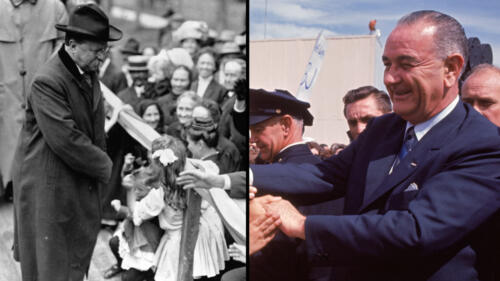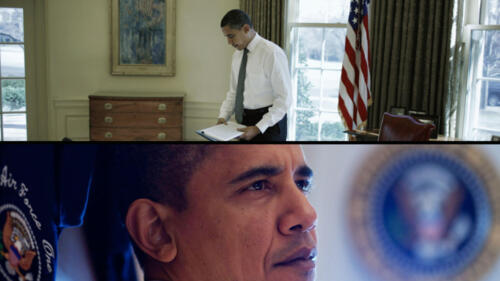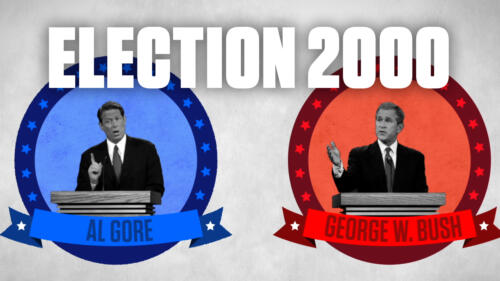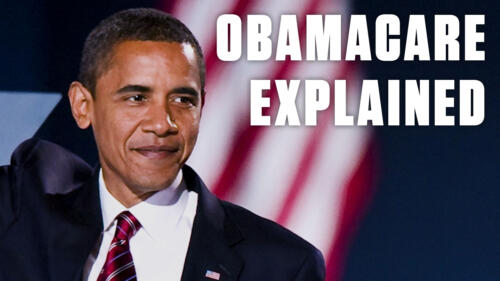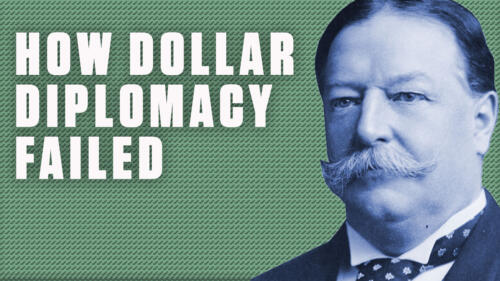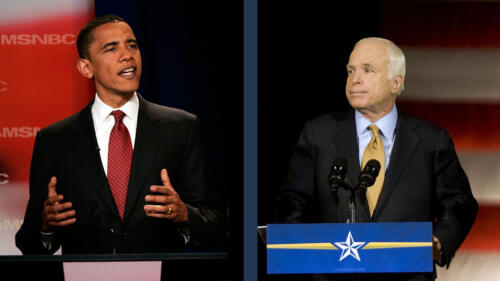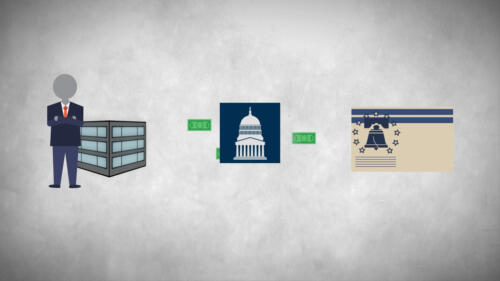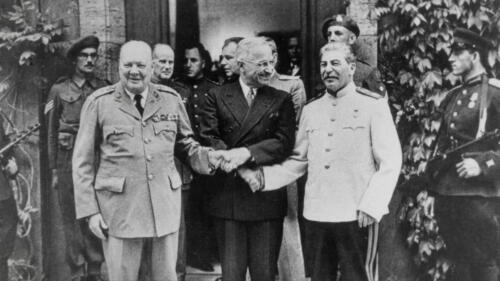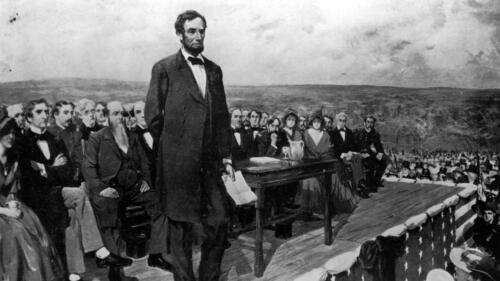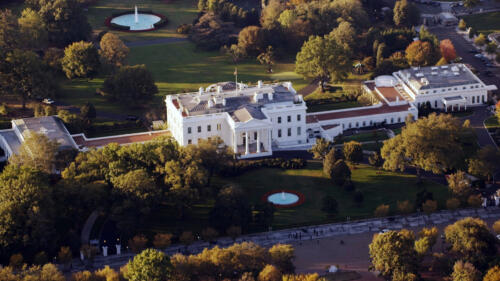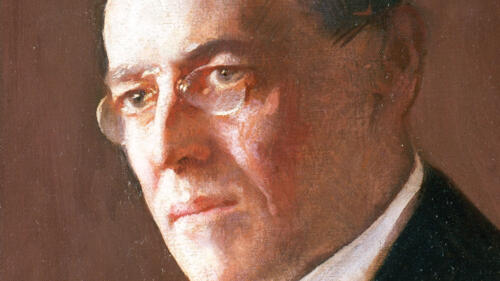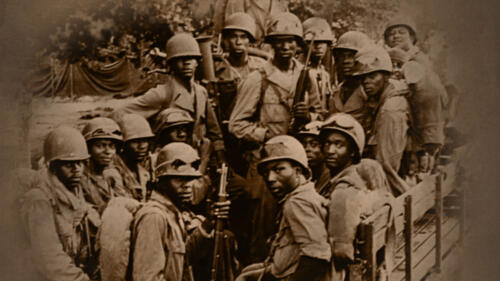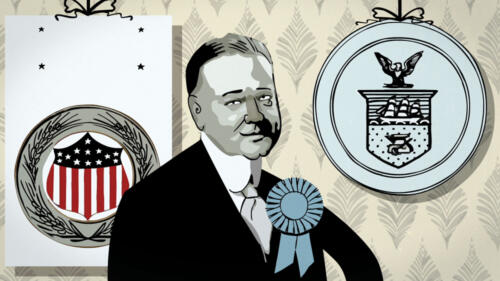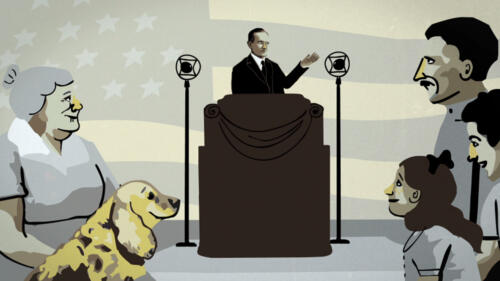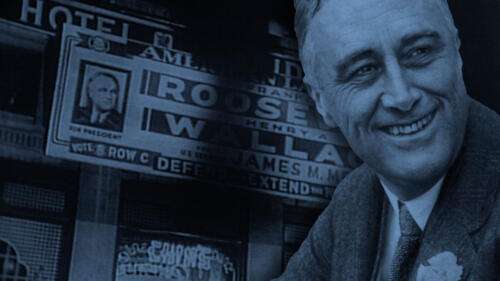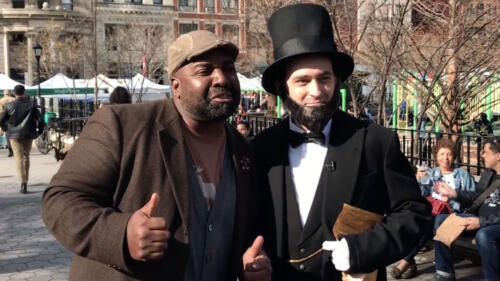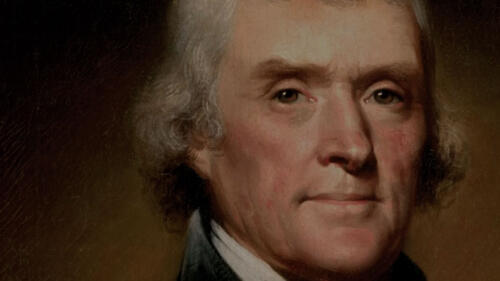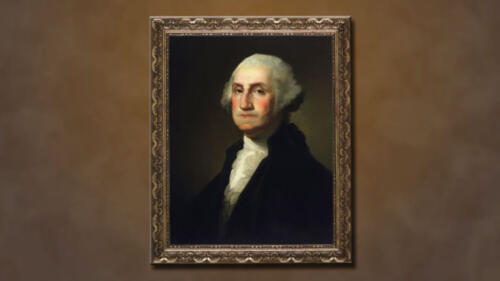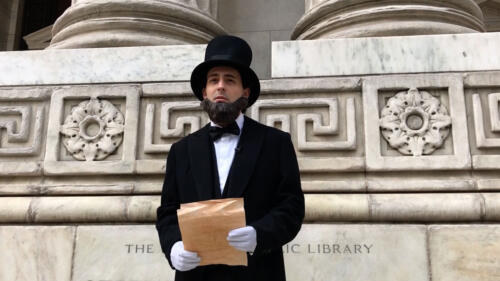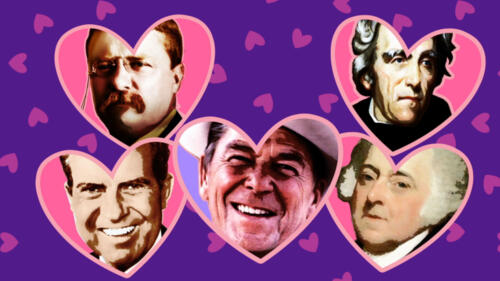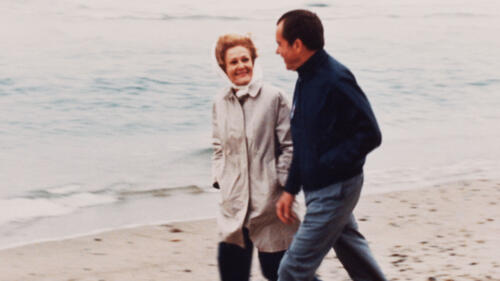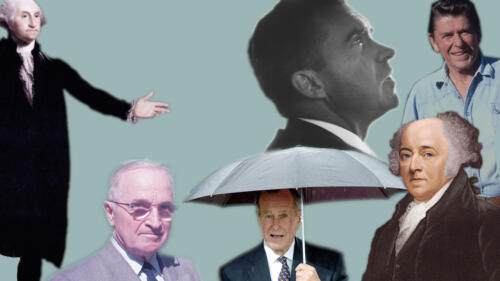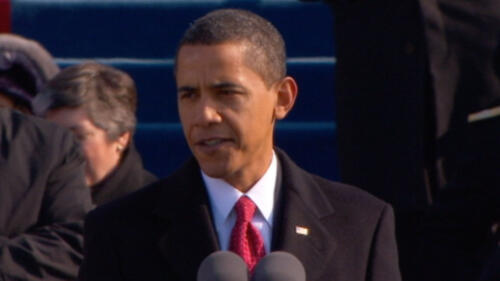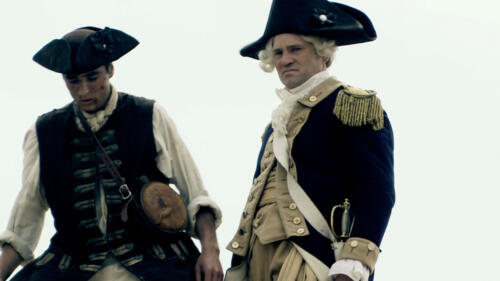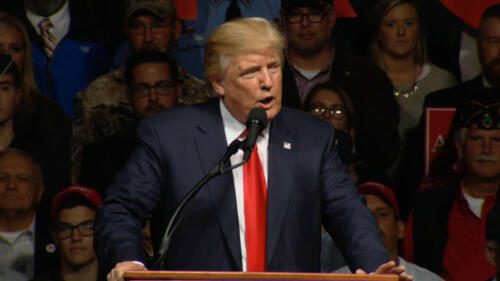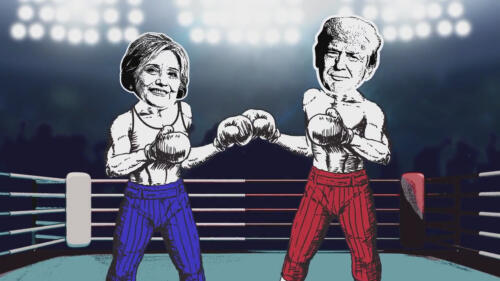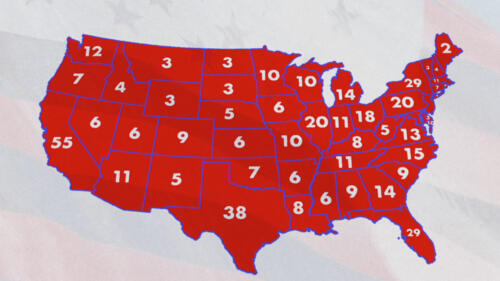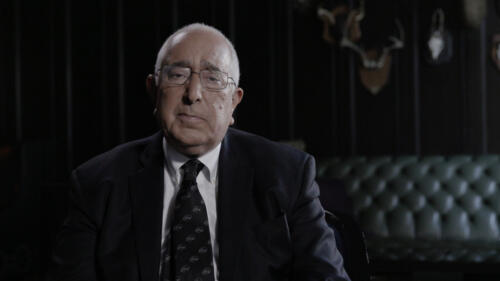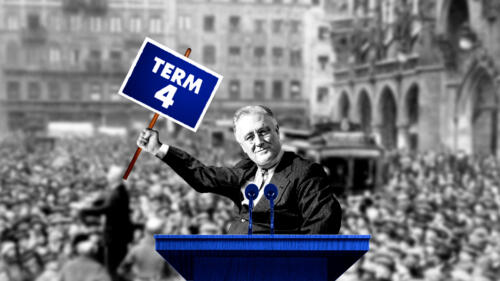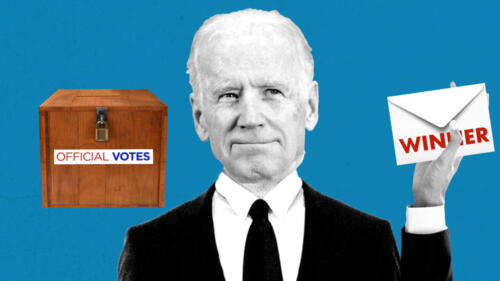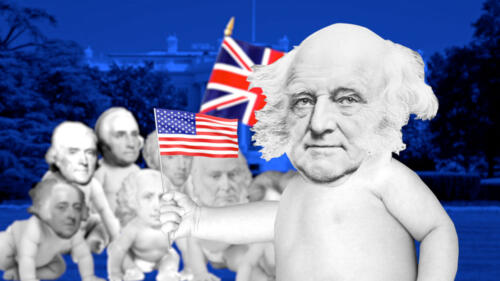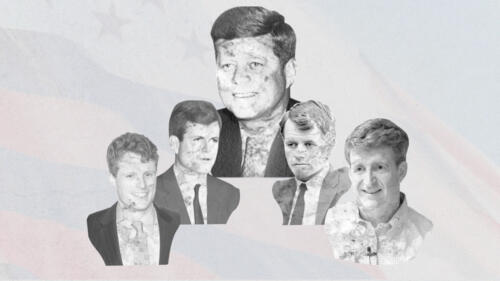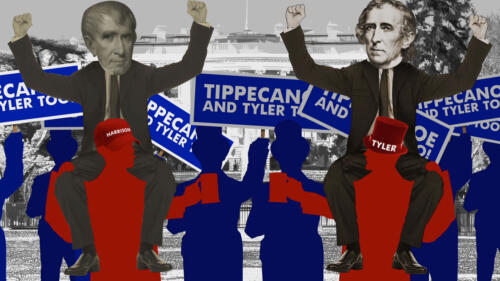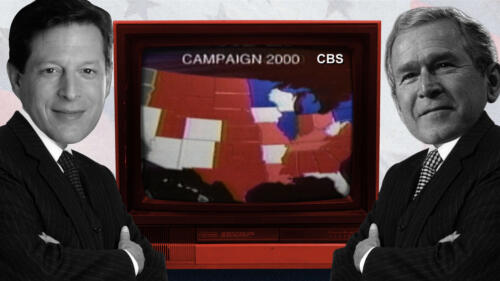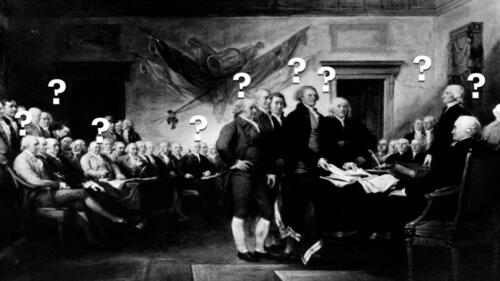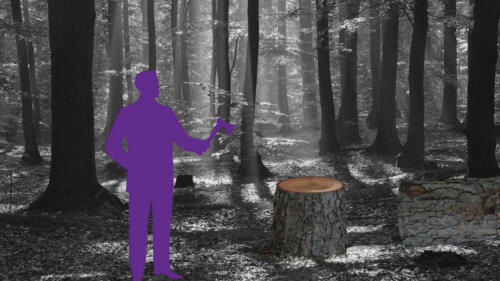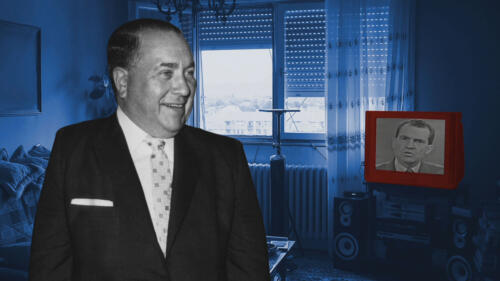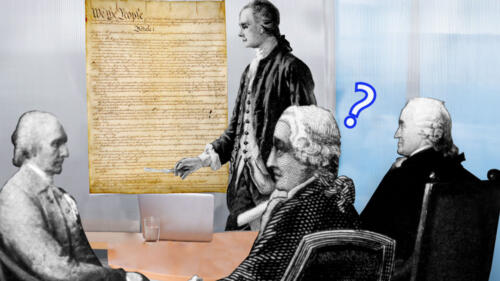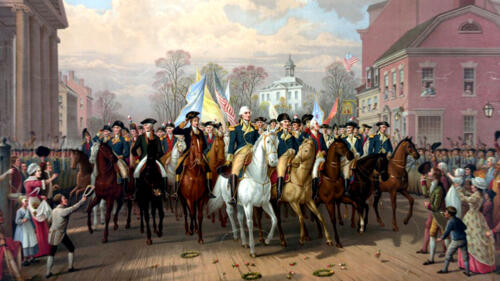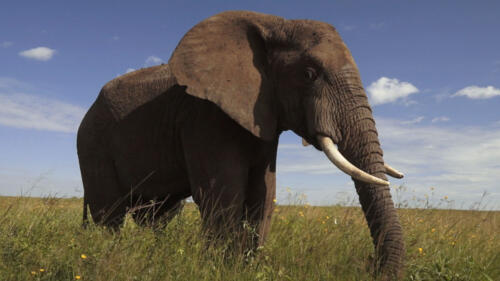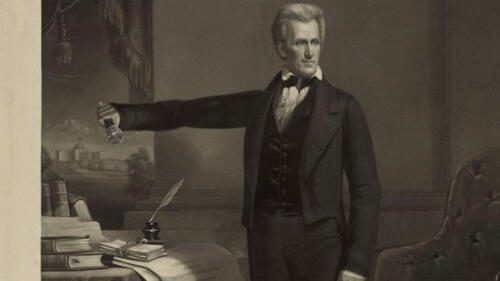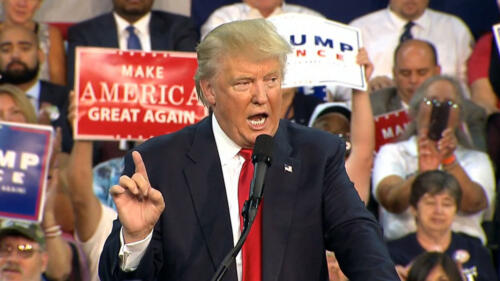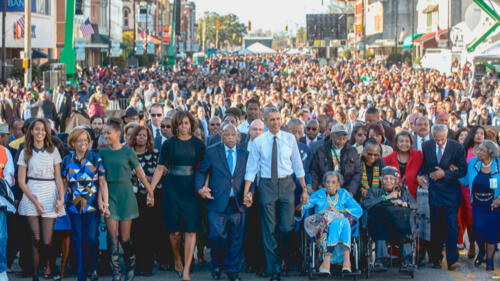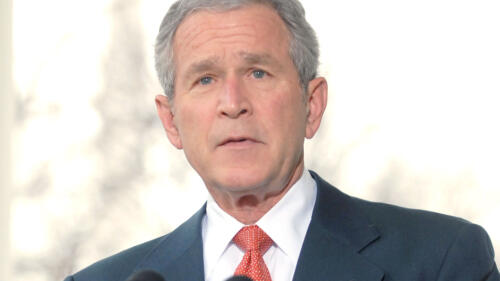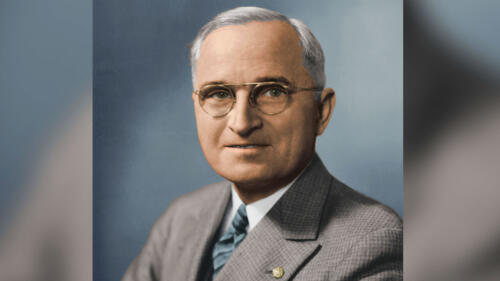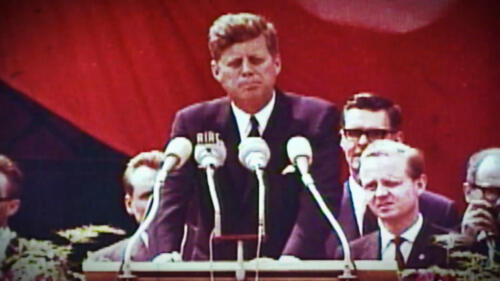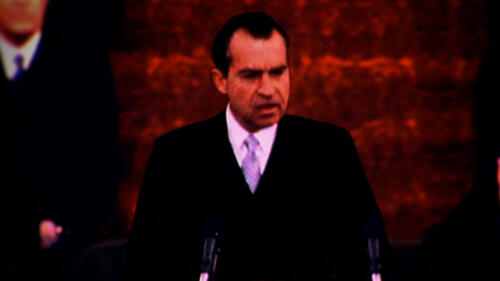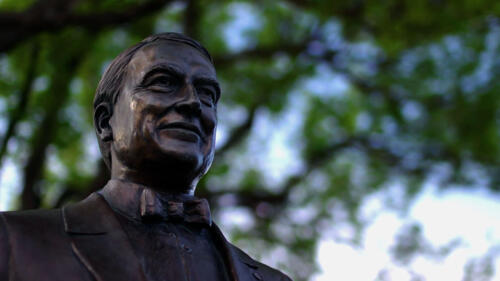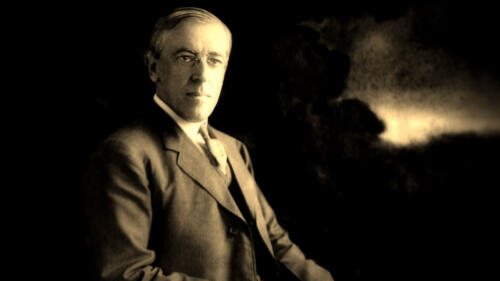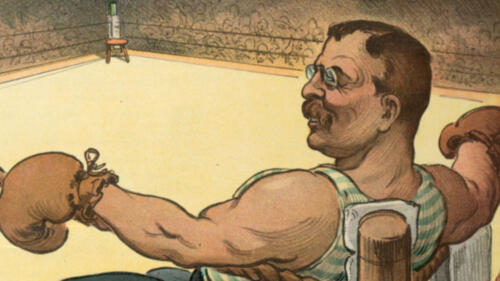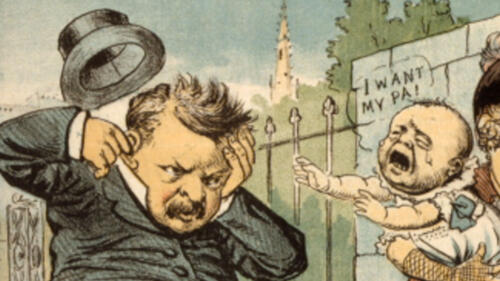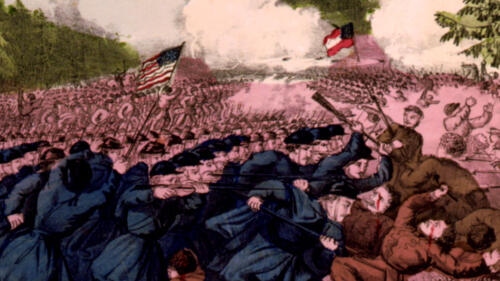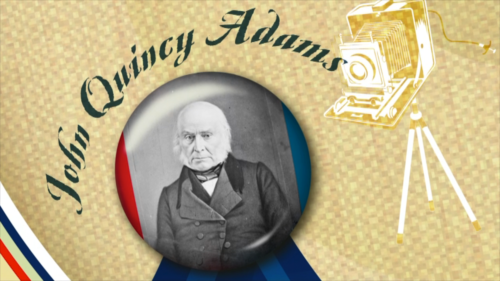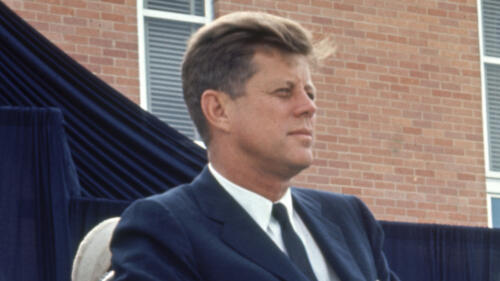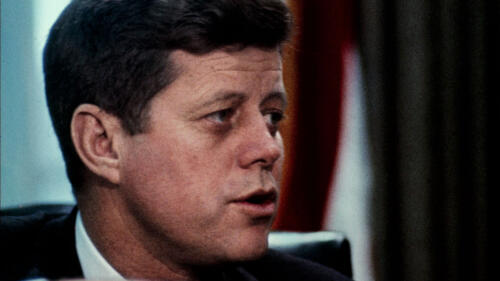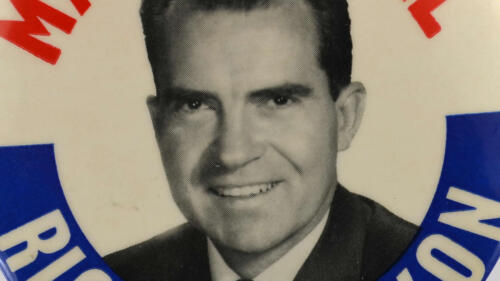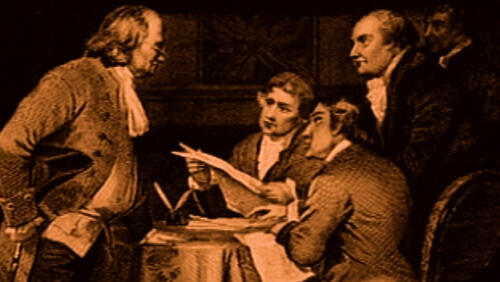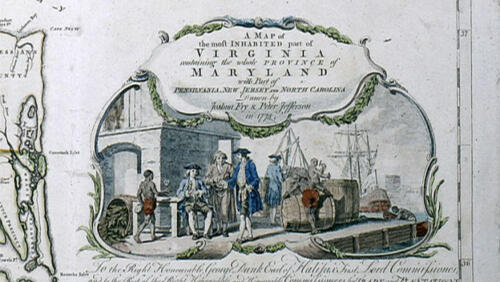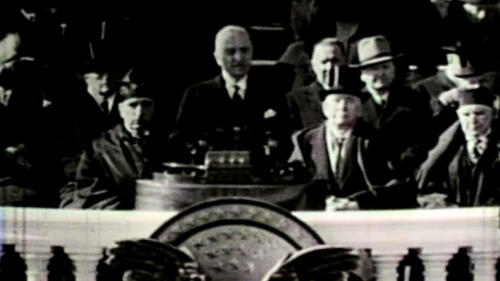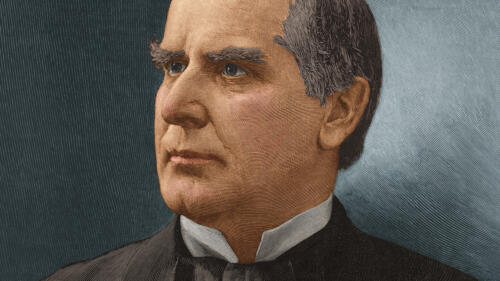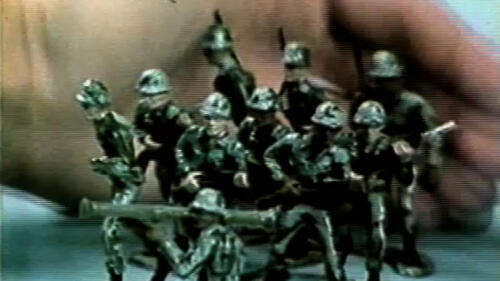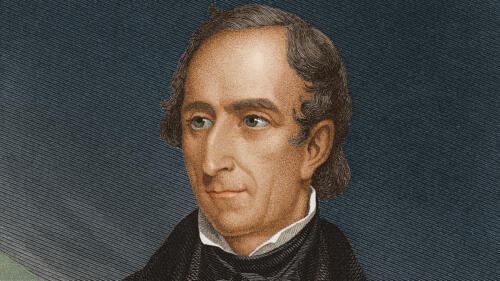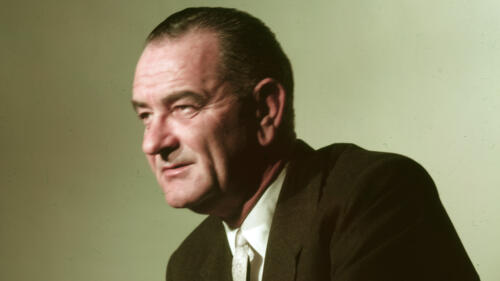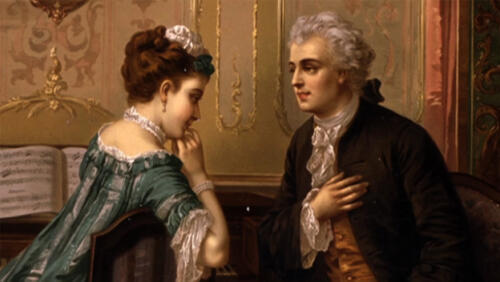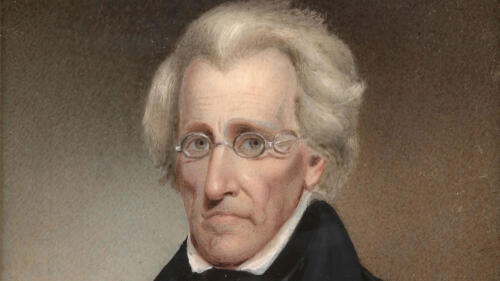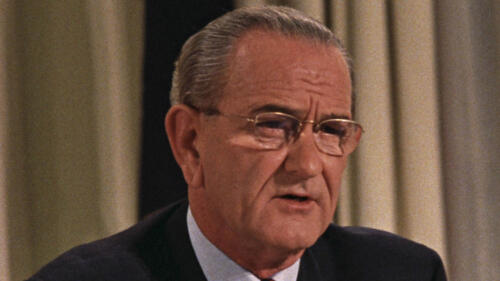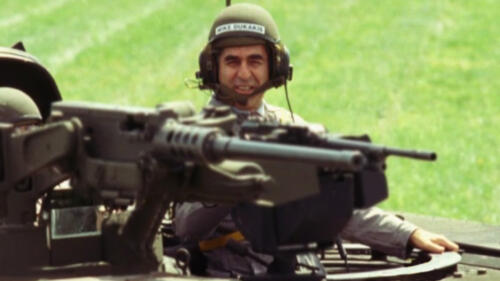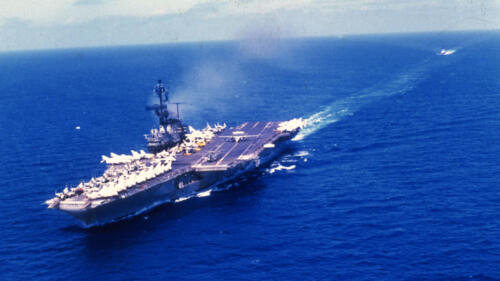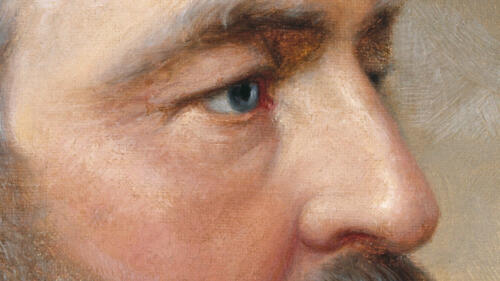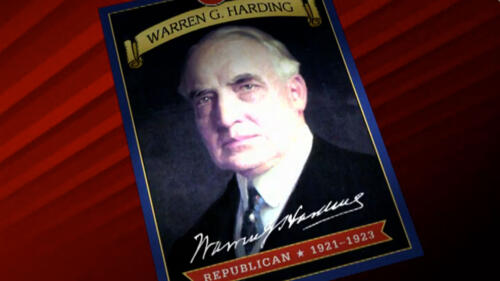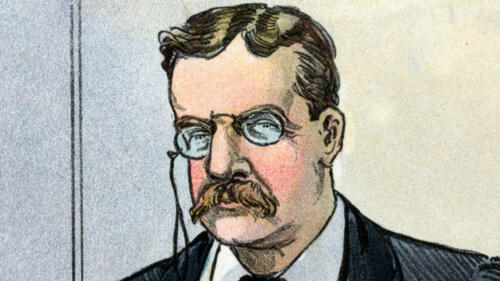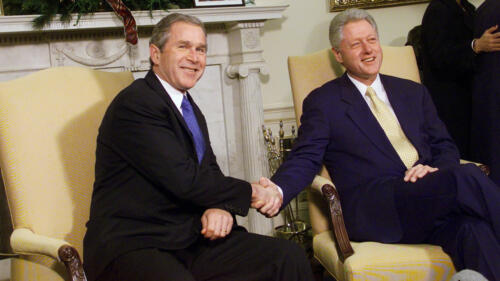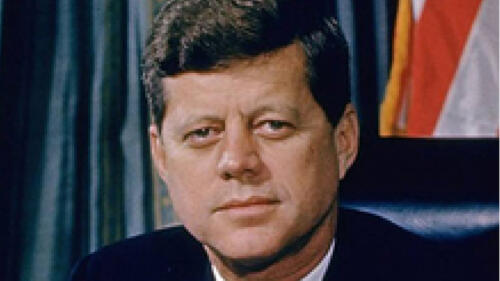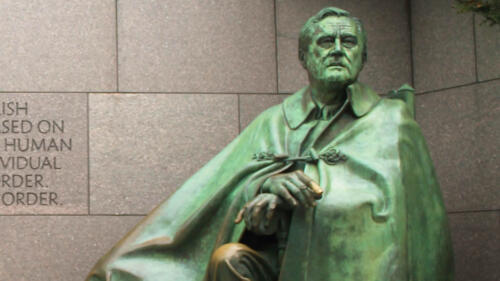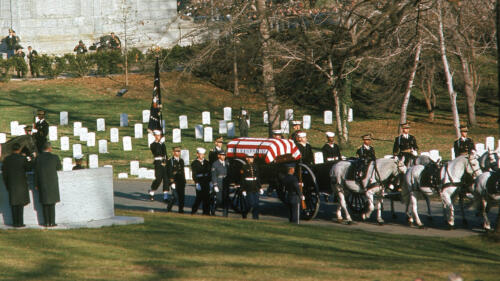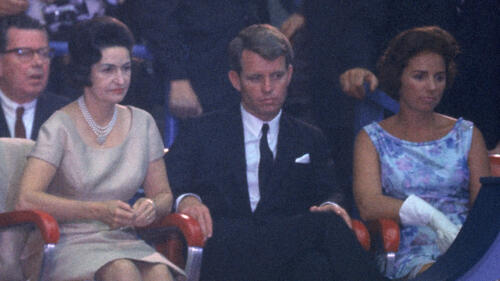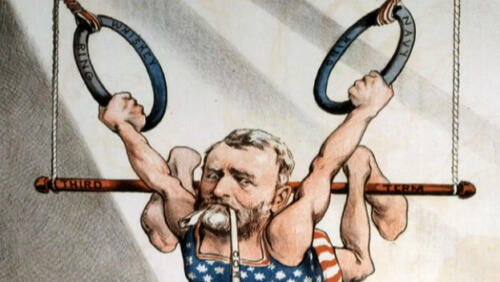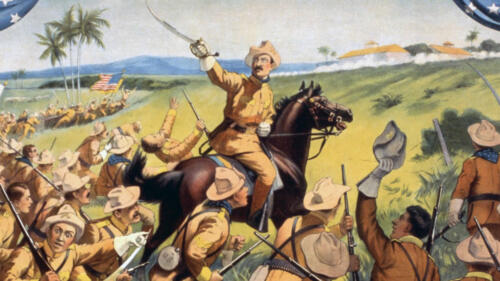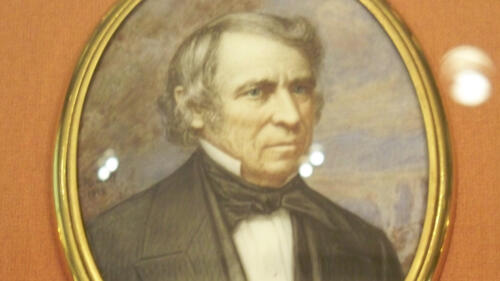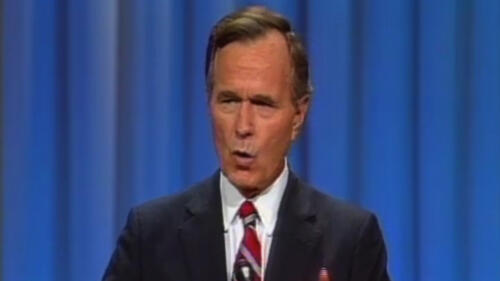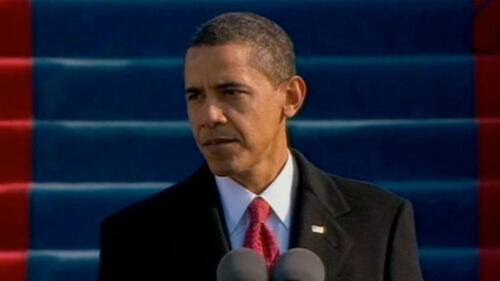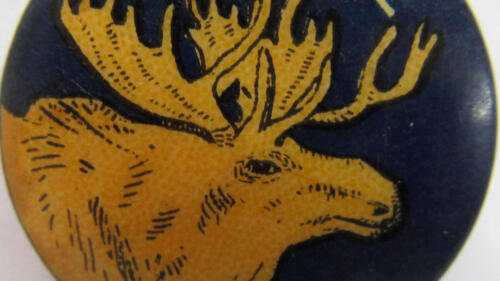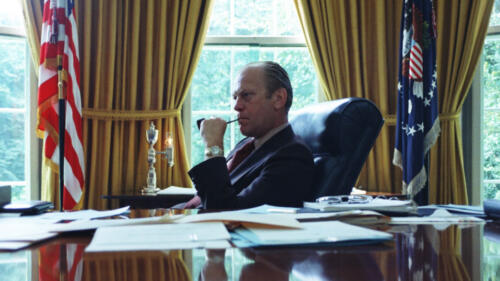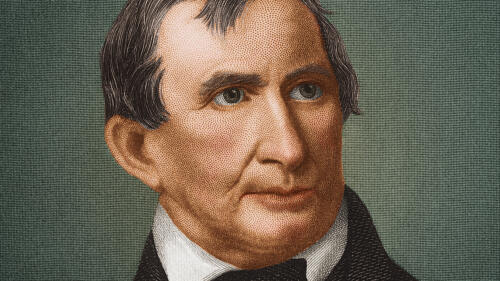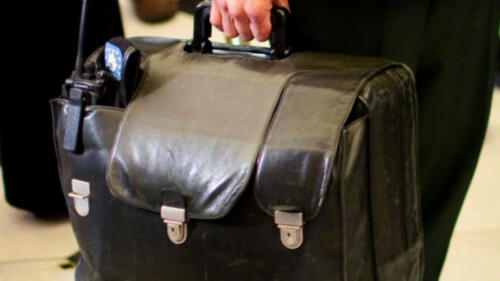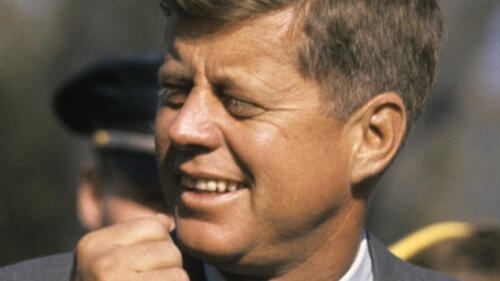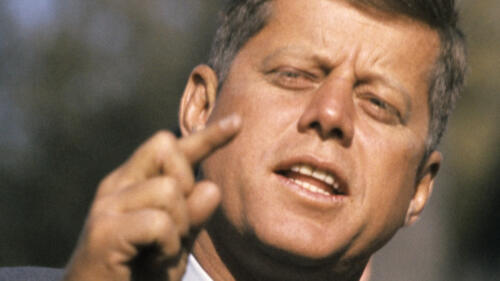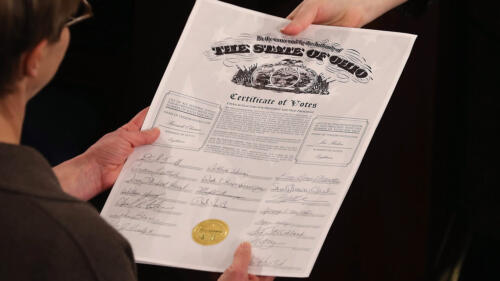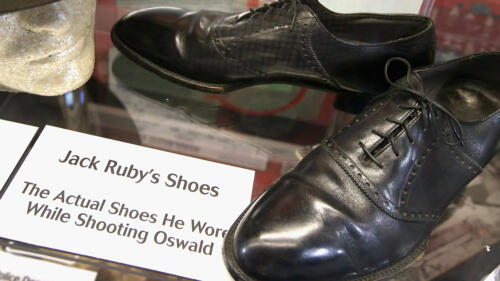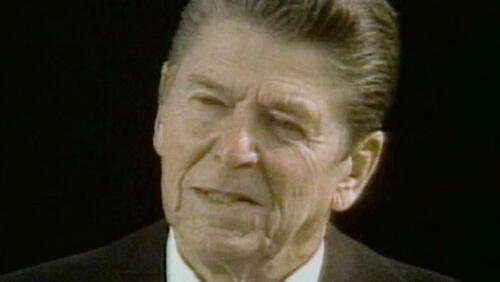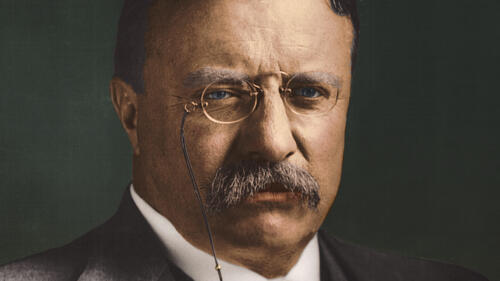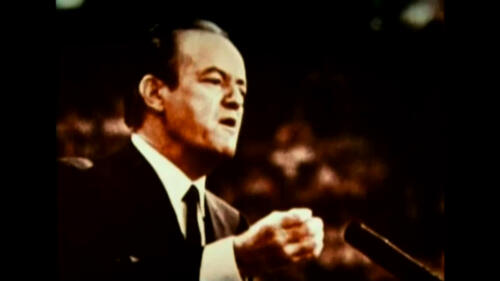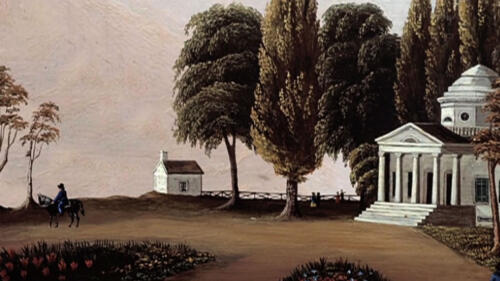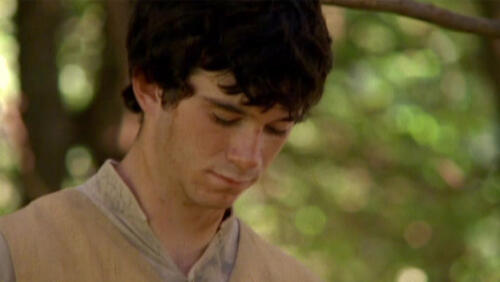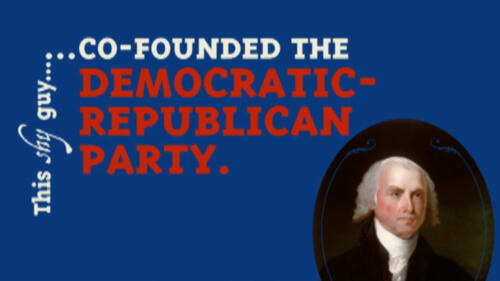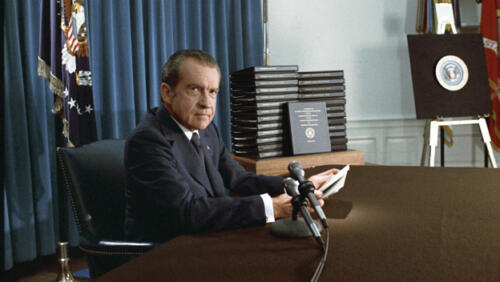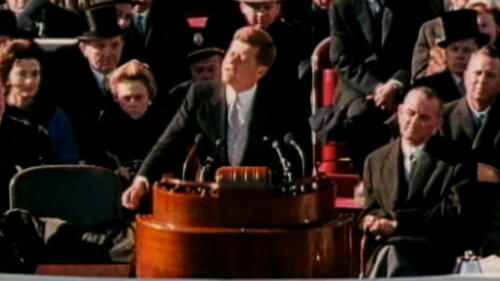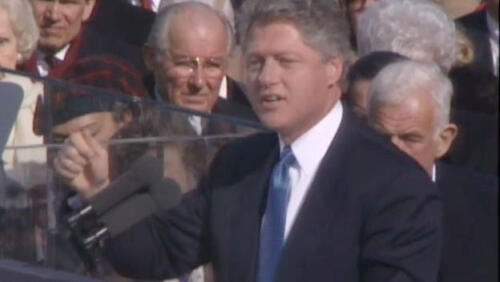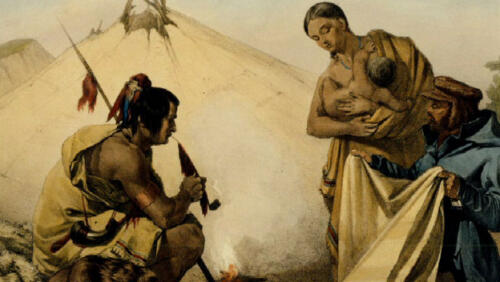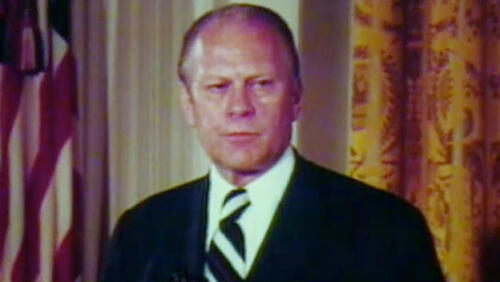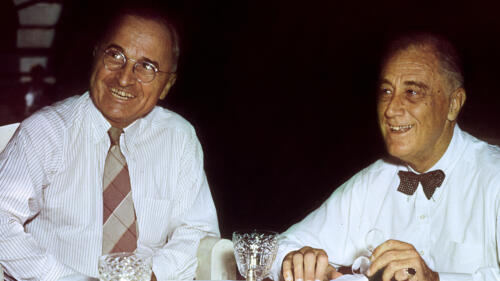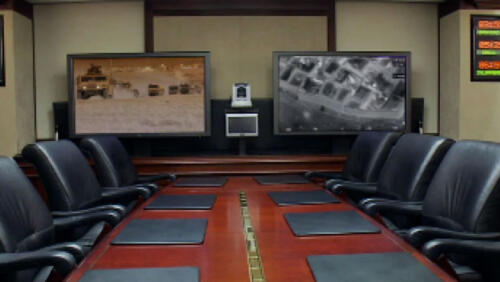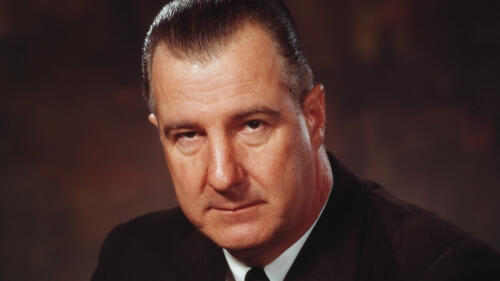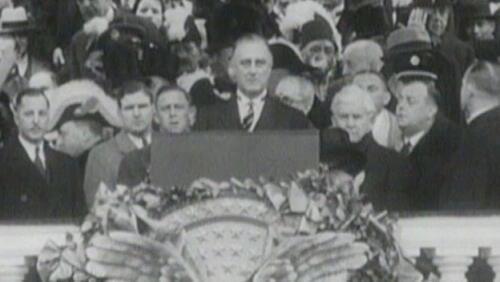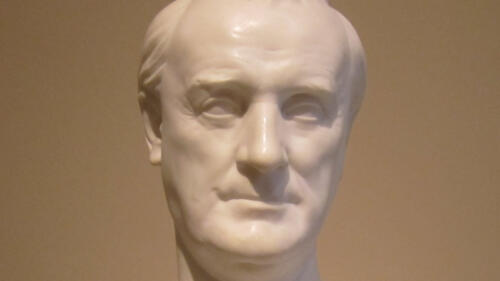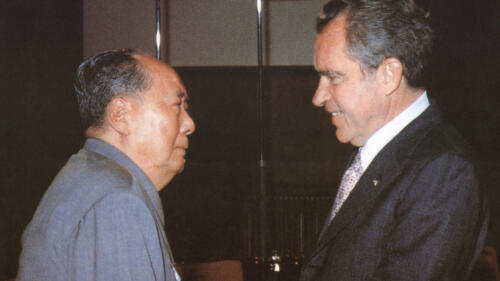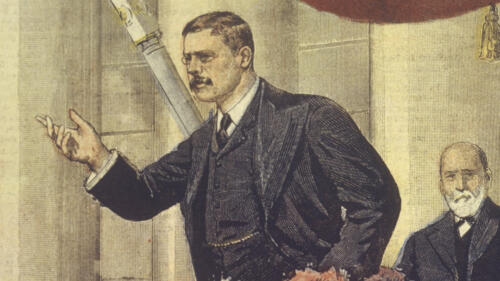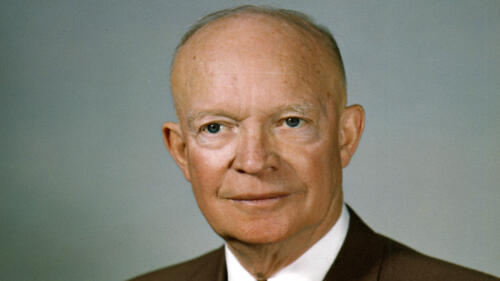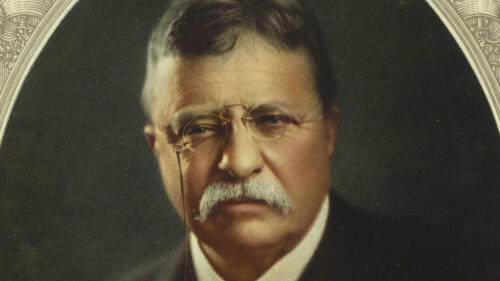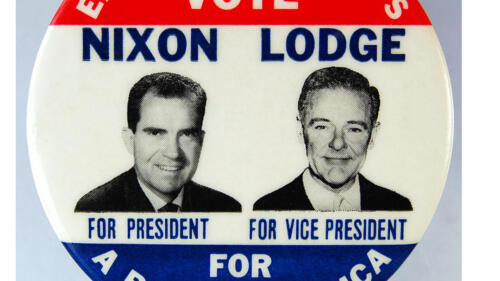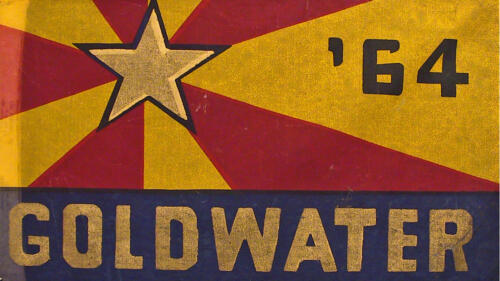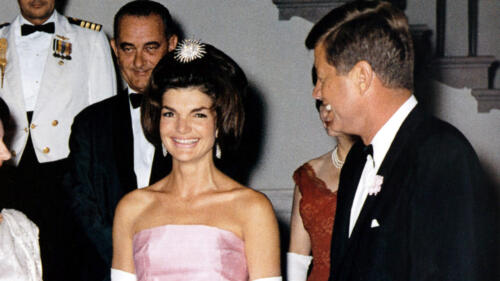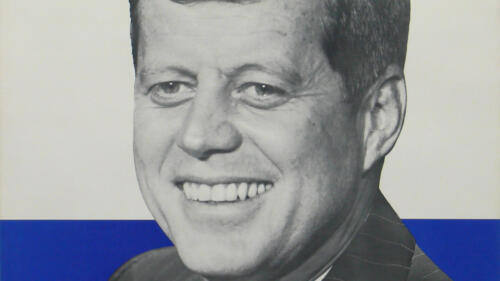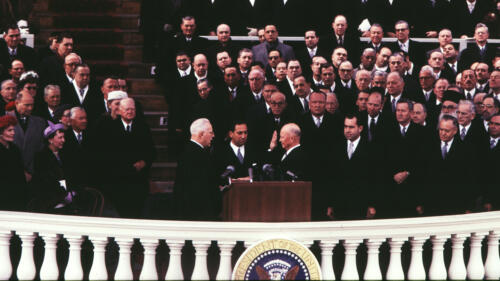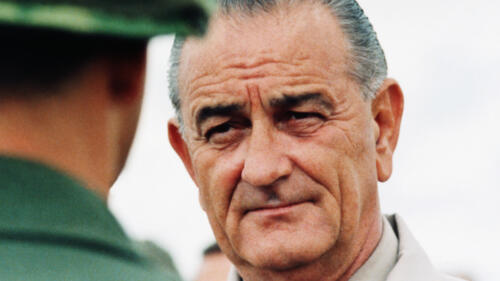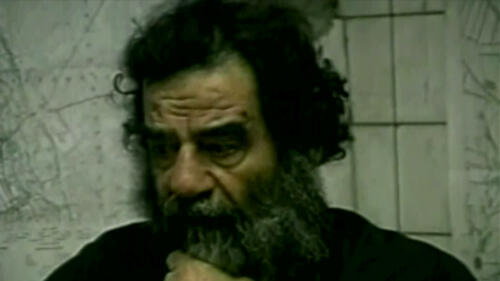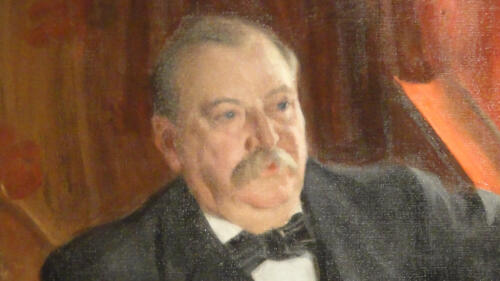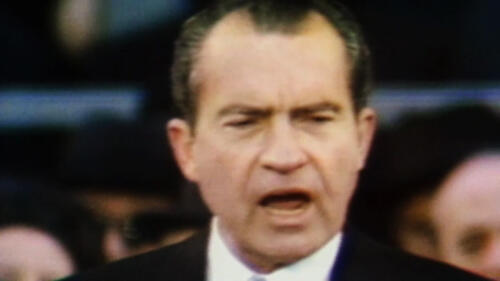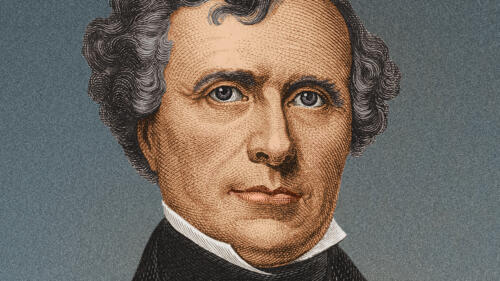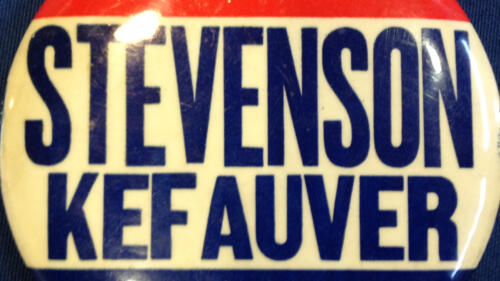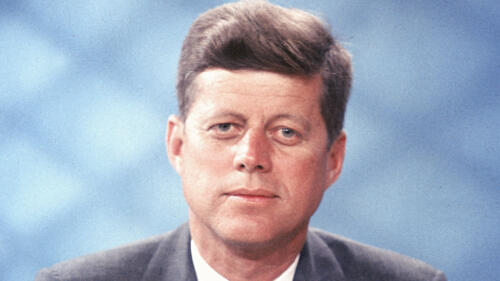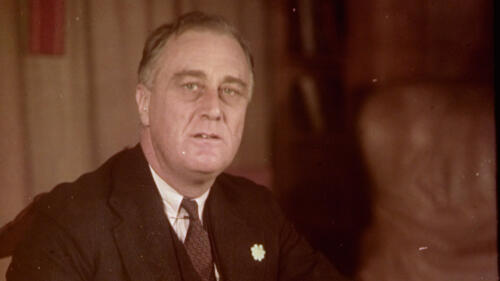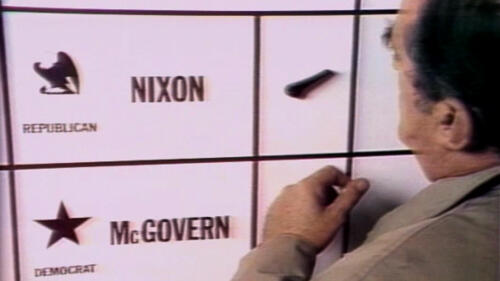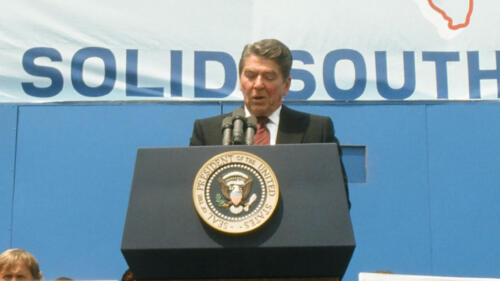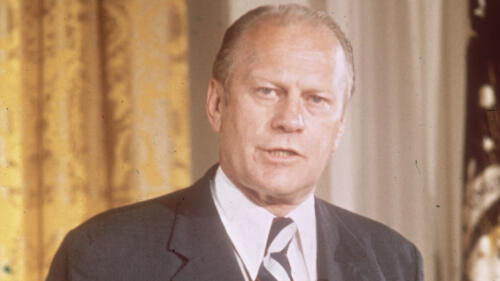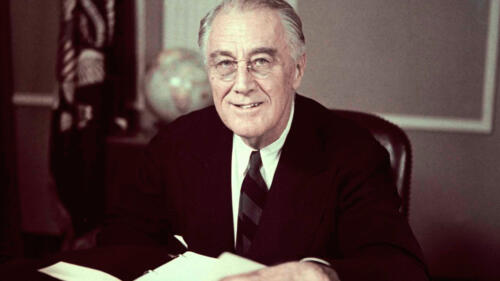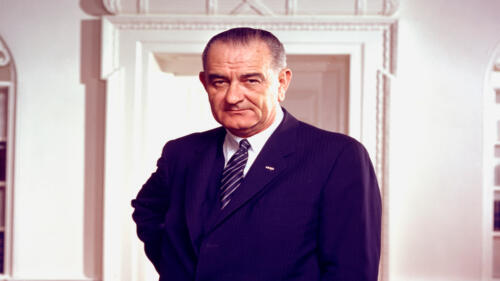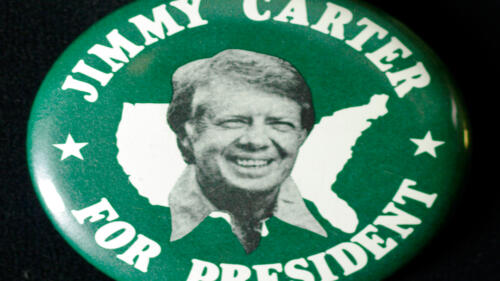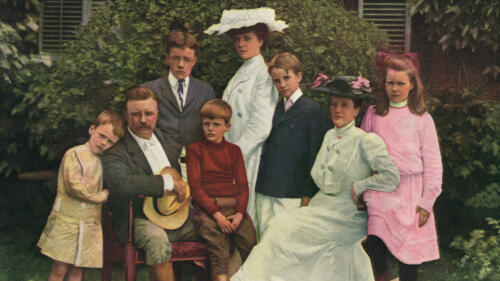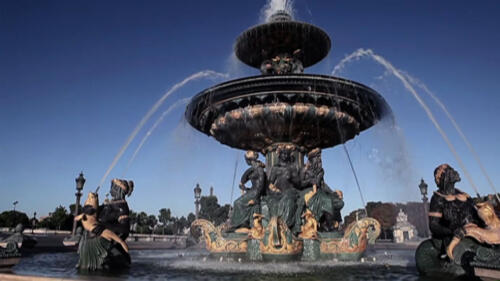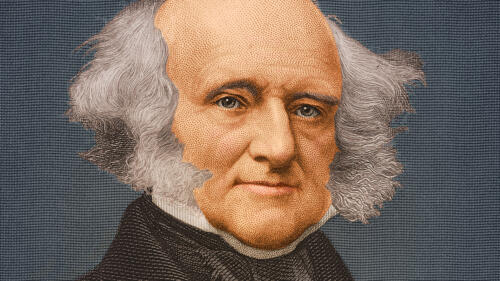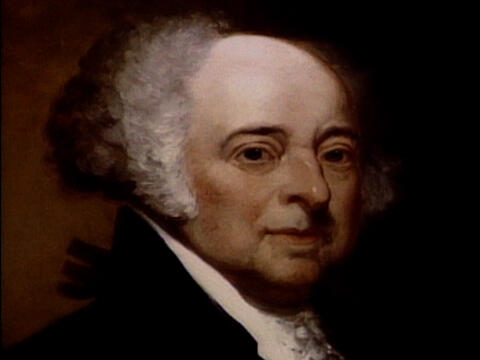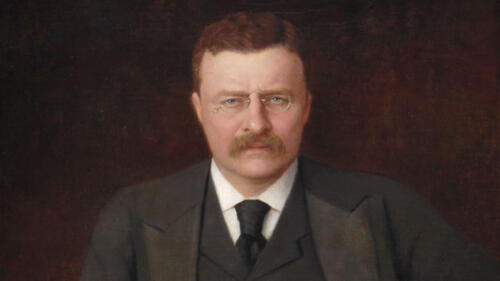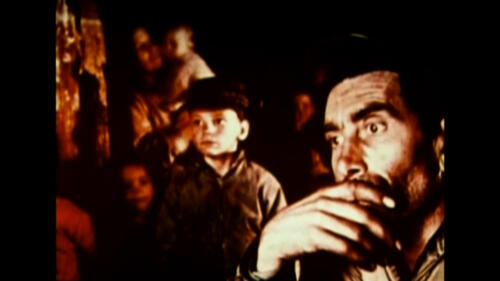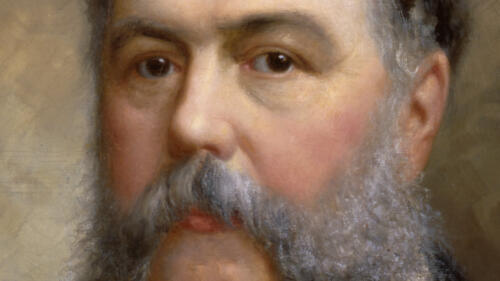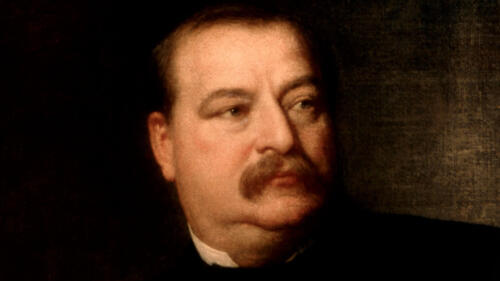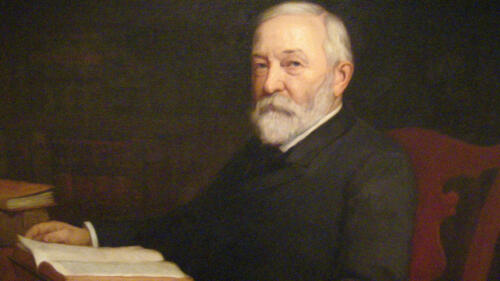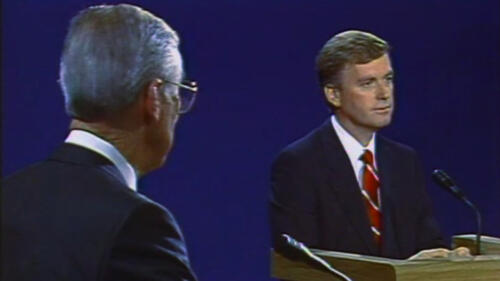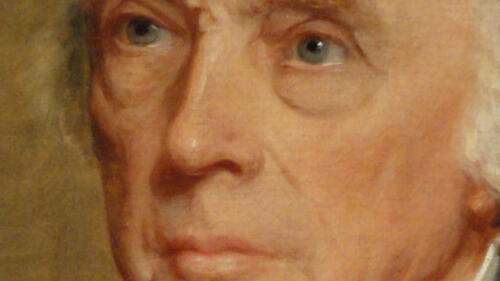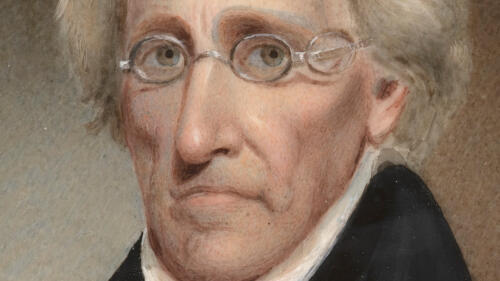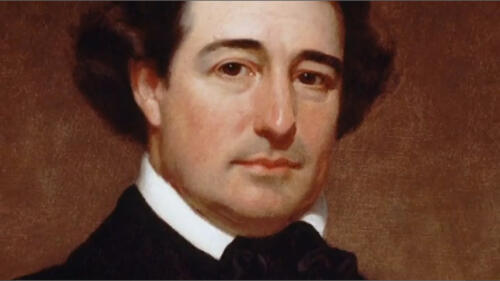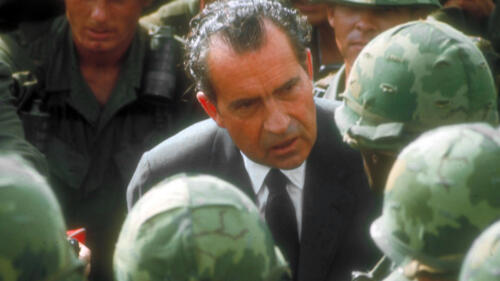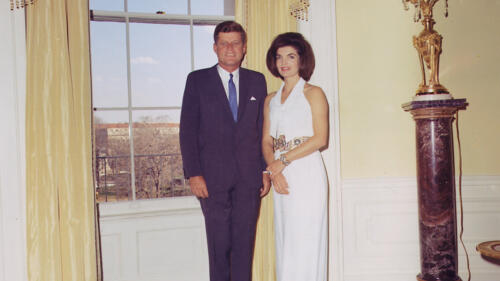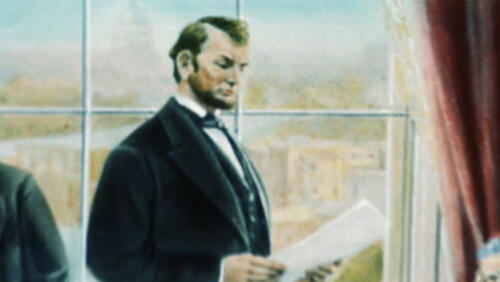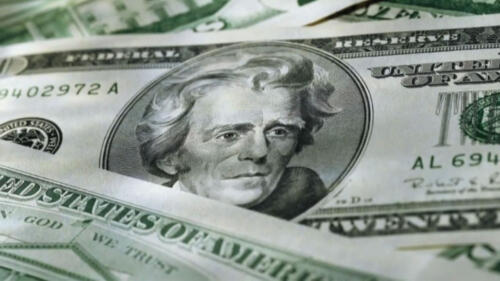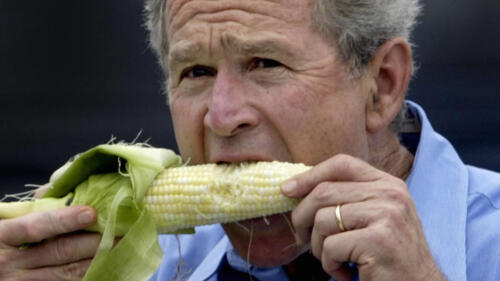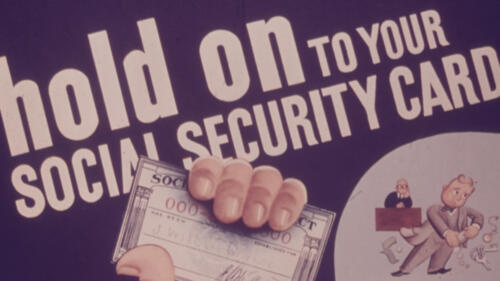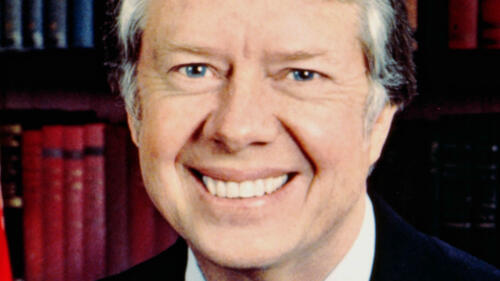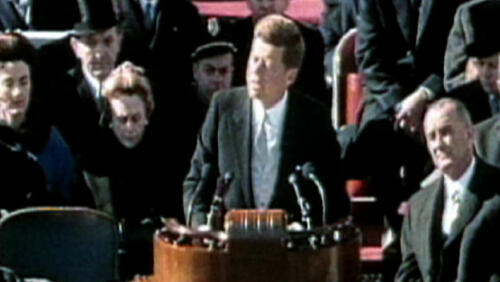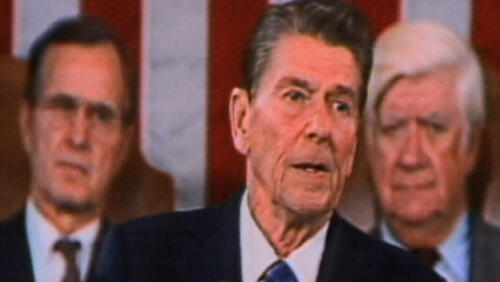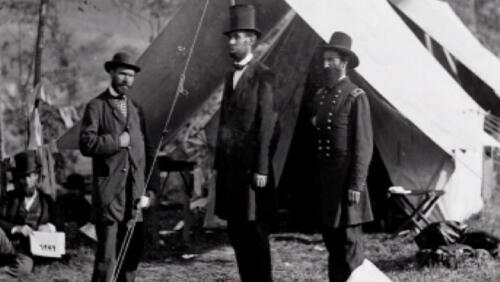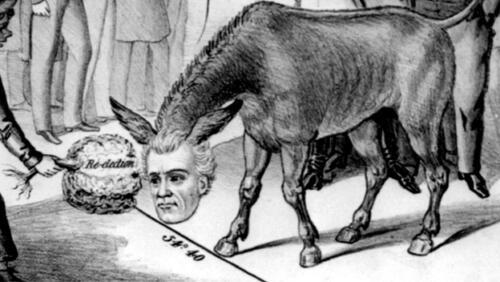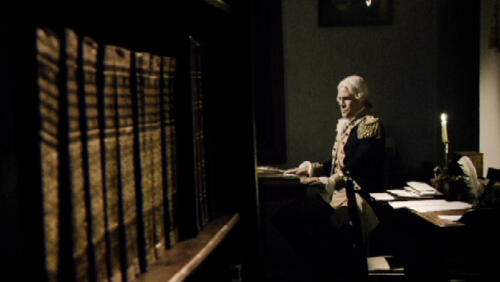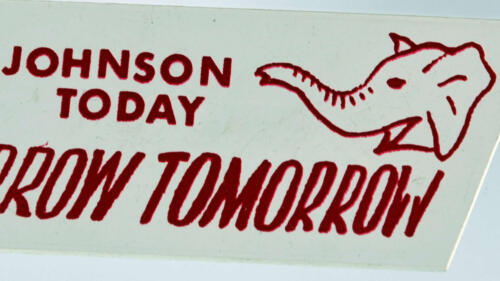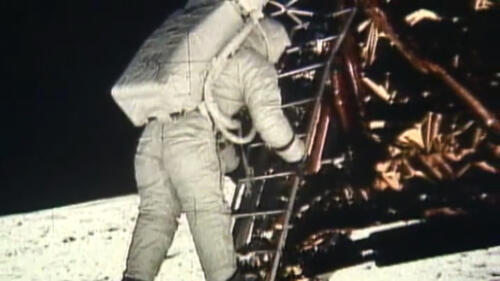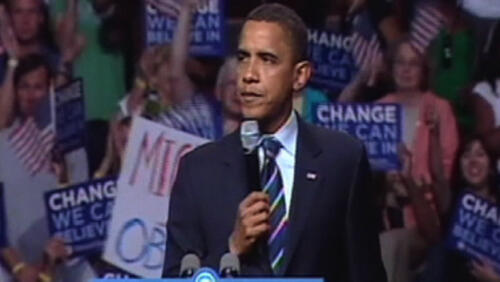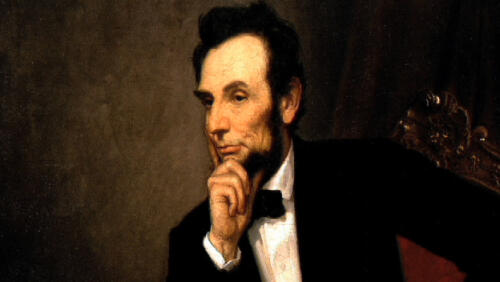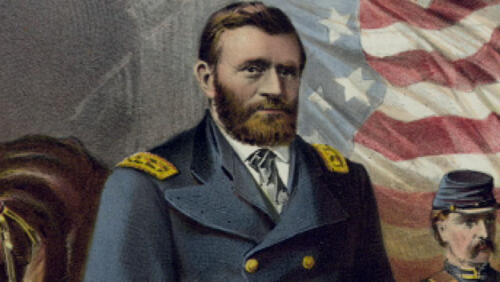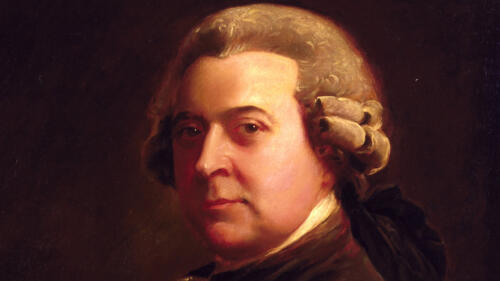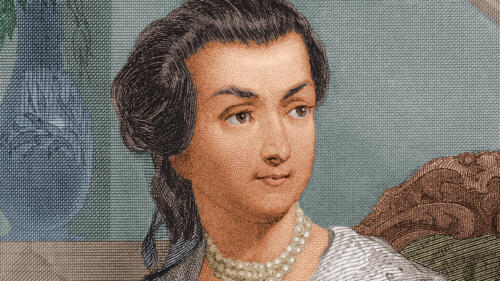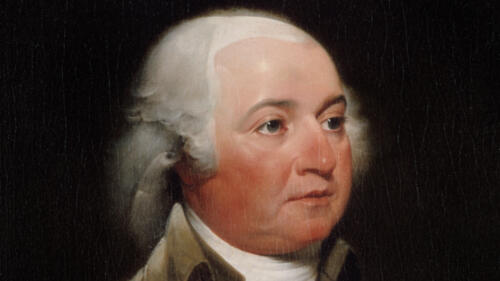U.S. Presidents
America’s Founding Fathers decided that one elected civilian—the U.S. president—would lead the executive branch of the federal government, a structure that has remained in place for nearly 250 years. Learn about U.S. presidents and presidential elections, from George Washington and Thomas Jefferson to John F. Kennedy and Donald Trump.
Featured Overview
What is it like to be the president of the United States? Find out what it's like to occupy the most important seat in the free world.

Featured Overview
What is it like to be the president of the United States? Find out what it's like to occupy the most important seat in the free world.
Start Here

Framers of the Constitution identified just three requirements. The 14th and 22nd Amendments added two more.

Over a span of six decades, the first 10 presidents of the United States—from George Washington to John Tyler—helped define the role of the executive branch as we know it today.

His privileged childhood on a Virginia plantation gave him access to a rich education. He fell in love with Enlightenment ideas.

From carefully staged speeches to radio to Twitter, U.S. presidents have always leveraged the cutting edge to connect directly with voters.
Presidential Advice
Advice from the Founding Fathers: George Washington
When George Washington was young, he copied down 101 rules of social behavior that would later become a book of his titled Rules of Civility & Decent Behavior in Company and Conversation.
3 Surprising Facts
Explore All Related Topics

For more than 200 years, the White House has been a work in progress.

U.S. presidents have received elaborate welcomes by the British monarchy since 1918.

Before the Department of Defense, the U.S. had a Department of War and a National Military Establishment.

The Pulitzer Prize–winning author and historian discusses three major presidential decisions—when history hung by a thread.
As the Civil War teetered, Lincoln weighed the Emancipation Proclamation—an audacious act that reshaped the nation’s course.
Doris Kearns Goodwin shares how President Lyndon B. Johnson, despite fierce resistance, rose to meet a defining moment in U.S. history.
A young George Washington hungers for fame and prestige as an officer in the British military.
Twenty-three days before his assassination, JFK signed his final bill: the Community Mental Health Act, funding local mental health care.

One of the country’s most famous figures introduced America to the gooey pasta dish.

The 'flying White House' took presidents' travel to new heights.

They wouldn’t all earn spots on the Mount Rushmore of dads.

The project's stated goal: to 'use the available federal machinery to screw our political enemies.'
The youngest president ever elected, Kennedy faces the height of the Cold War and a national civil rights crisis.
Kennedy navigates his formative years, including his time in school, relationship with his family and early interests in history.
When the United States joins the war against Nazi Germany and Japan, Kennedy volunteers for the Navy and is deployed to the Pacific.
After nuclear weapons are placed 90 miles from the Florida coast in Cuba, Kennedy faces his ultimate trial.
Kennedy embarks on an unprecedented 5-year campaign for the presidency, revolutionizing modern campaigning and the use of television.
Learn about the enigmatic bond between JFK and Jackie and their journey from courtship to marriage in this video from "Kennedy."
Kennedy pursues diplomacy with the Soviets and decides to address civil rights in a way no president has before.
The final months of John F. Kennedy's life and the legacy he left behind.
Electronic communications devices like smart phones present unique security challenges when used by the president and his high-level staff.
Trace the evolution of America's fighting men and women over the 250-year history of the nation.
From the early settlers and the Revolutionary War against Britain, soldiers have played a key role in the seminal events that have shaped America.
J.P. Morgan's attempt to play by his own rules doesn't go over too well with Roosevelt. Later on, Roosevelt must also deal with a major coal strike.
Teddy Roosevelt takes on the most powerful and influential people to put a stop to corruption.

Since 1979, the United States has technically been in constant states of emergency.

Jefferson spent $7,500 ($200,000 in current dollars) on wine in his first presidential term alone.
Diagnosed with terminal cancer and on the brink on financial ruin, Grant races to finish his memoirs to provide for his family.

The Founding Father’s beloved Virginia estate doubled as a focal point for his experiments in architecture, horticulture and invention.

Long-established customs around the transition and Inauguration have helped insure the orderly handover of power from one president to the next.
FDR holds his first ever fireside chat as president of the United States.
FDR lends military supplies to aid the United Kingdom in WWII.

His privileged childhood on a Virginia plantation gave him access to a rich education. He fell in love with Enlightenment ideas.

In his life before presidency, Carter helped fix a nuclear reactor while it was melting down and once reported a UFO.
Former President Jimmy Carter, the 39th President of the United States, has passed away at the age of 100. Carter was the longest living president in U.S. history.

The 39th president served during difficult times and became known for his profound humanitarian and diplomatic work in his post-presidency years.

The legacy of America's 39th president extends far beyond his four years in the White House.

From the Civil War to the rule of Ferdinand Marcos in the Philippines, find out how martial law has been enforced—and exploited.

In 1982, President Reagan appointed private sector experts to hunt for wastefulness and inefficiencies. They were met with limited success.

President Cleveland lost his first reelection bid in 1888—then returned four years later to win back the White House.

After the election went to the House of Representatives, an anonymous letter accused two of the candidates of making a 'corrupt bargain.'

While the vice presidency may seem like a prime launching pad, only 15 U.S. VPs have advanced to the highest office.

Framers of the Constitution identified just three requirements. The 14th and 22nd Amendments added two more.

What was the most-watched U.S. presidential debate in history? Find out this and other surprising facts about the relatively modern political tradition.

When it comes to the U.S. presidency, how did the first 100 days come to loom so large as a political benchmark?

A day after George Washington’s death, a doctor arrived at Mount Vernon and proposed a procedure to resurrect America’s first president.

The Hawkeye State operates an unusually long nominating process.

These videos showcase the vision and hope John F. Kennedy inspired in Americans—and the immense national grief they shared upon his death.

President Wilson's blueprint for ending World War I and avoiding all future global disputes was ambitious—but ultimately a failure.
FDR hopes to get an inside track to Washington to one day become president of the United States.

Roosevelt, known as 'the great communicator,' used his speeches and fireside chats to calm Americans’ fears—and to rally them around his policies.

From regular infections to excruciating back pain, JFK contended with a range of physical challenges before and during his time in the White House.

One of America's most revered presidents, Roosevelt also had his share of missteps—from trying to pack the Supreme Court to incarcerating Japanese Americans.

Franklin Roosevelt’s children offered physical, emotional and political support throughout his presidency.

Social Security differed from other New Deal programs in that it wasn’t a short-term solution to the Great Depression. It was a long-term investment.

Franklin D. Roosevelt’s formative years instilled in him the empathy, optimism and stoicism that marked his presidency.

Hush money to mistresses, secret payments for an out-of-wedlock child and far-reaching corruption tainted the 29th president’s legacy.

Roosevelt endured persistent physical challenges—including paralysis and heart issues—that were largely shielded from the American public.

Sudden illnesses, assassinations and elections all abbreviated these presidents' terms in office.
Thomas Jefferson cultivates a plan to buy the Port of New Orleans, but got much more than he bargained for.

Roosevelt wanted the U.S. to wield 'a big stick' in global affairs, the way European empires did.

As Roosevelt scaled the rough-and-tumble political ranks of his home state, he wasn't afraid of making enemies.

Before formally entering World War II, FDR came up with a few key strategies to provide critical aid to allies in Europe in the fight against Hitler's Nazi Party.
In early drafts, Lincoln’s famous Emancipation Proclamation considered sending formally enslaved people to African colonies. But a letter from Frederick Douglass changed the President's mind.

Theodore Roosevelt's views stood out as progressive for the time—even as they were tempered by traditionalism.
During the debates between Lincoln and Douglas, Lincoln combined the nation's moral compass with the Constitution.

From a 19th-century president who killed a man in a duel, to a 20th-century leader who once worked as a lifeguard, learn surprising facts about each U.S. president.

Millions of Americans bade farewell to the assassinated president as his body made a 1,700-mile journey home.

Tall and gangly, with rough-edged frontier roots, the 16th president was an easy figure to caricature.

From soaring oratory like the Gettysburg Address to folksy, humorous yarns, Lincoln knew how to wield the power of words.

Franklin D. Roosevelt's vice president was an anti-labor conservative who clashed with the president over federal spending and FDR's decision to run for a third term.

Rugged conditions. Heavy labor. Minimal schooling. And a mother gone too soon.

The 16th president had a stern father, a supportive stepmother and a beleaguered wife.
When the lame duck period was much longer than it is today, two U.S. presidents let their personal animosity drag the country further into crisis.
FDR's nomination as president in 1932 was far from a sure thing, the result of political maneuvers and backroom deals.
Two former friends became fierce rivals, and it all played out on one of the biggest stages in politics.

Security fears and austerity forced a scaled-down inauguration as the nation entered its fourth year of fighting in World War II.

From pomp and circumstance to protests, see how presidential inaugurations have looked over the years.

Answers to top questions about the executive residence at 1600 Pennsylvania Avenue.

Presidential transitions through U.S. political history have ranged from smooth to awkward to adversarial.

Despite the important role of the Electoral College, the Constitution doesn’t say much about the electors themselves.

Lingering effects of the 'Spanish flu' may have hindered Wilson's ability to effectively advocate for his '14 Points' at the Paris Peace Conference.

Presidents dating back to George Washington have faced serious health issues while in office. Since 1967, the 25th Amendment has provided clear protocol.

As the United States entered World War I, President Wilson and Congress sought to silence vocal and written opposition to U.S. involvement in the war.

The election of 1800 marked the first time the leader of one political party handed the reins of government to his opponent.

Political campaign slogans haven't always caught on. In fact, some have proven odd or embarrassing.

The first Black presidential party nominee ran 104 years before the first Black president.

His conviction that white men of European descent were innately superior informed his actions on matters from national parks to foreign policy.

The Founding Fathers only set an age minimum for U.S. presidents—not a maximum.

Some undid the work of their running mate, others bolstered their ticket.

These presidential candidates didn't need to secure more popular votes to win election, due to the Electoral College.

Working from home is standard when you’re president.
Ulysses Grant took an unconventional path to the White House, rising from a leather goods salesman to a heroic general in a matter of months.

Aided by Mark Twain, the former president and Civil War hero raced to complete a literary masterpiece that saved his wife from destitution.

The Kent State shootings triggered wider student protests—and prompted a surprise presidential visit with students gathered at the Lincoln Memorial.

Following months of secret U.S. bombings on Communist bases, American ground troops were deployed to northern Cambodia on April 28, 1970.
Just after 9/11, President George W. Bush sent a message of perseverance to all Americans, with a perfect pitch

Weary from cataclysmic world events, the U.S. electorate chose a mild-mannered candidate promising quieter times.

Republican president William H. Taft successfully advocated for a permanent, national income tax.

When he sought a fourth term at age 62, FDR's doctor had issued a dire prognosis.
After President Warren Harding's death, Calvin Coolidge was left to deal with the fallout of his predecessor's corrupt legacy.
After Abraham Lincoln's death, President Andrew Johnson did everything he could to undermine the legacy of his predecessor.
William McKinley's assassination rocked the entire country, but not his successor, Theodore Roosevelt. He made it very clear from the start that the presidency was now his.

From carefully staged speeches to radio to Twitter, U.S. presidents have always leveraged the cutting edge to connect directly with voters.

He's America's first president. The icon we all think we know. But in reality, he was a complicated human being.
“Washington” will premiere over Presidents’ Day weekend airing consecutively on Sunday, 2/16, Monday, 2/17 and Tuesday, 2/18 at 9/8x. George Washington retired as General of the Continental Army in 1783. Upon his retirement he wrote a letter called the “Circular to the States” in which he shared his vision of how America and its citizens could succeed or fail in the years to come.

As he stepped down from the presidency, Washington urged Americans to always place the interests of the nation over their political and regional affiliations.
The Iowa Caucus is the earliest indication of how America's voters will choose their primary candidates, but why does Iowa get to go first?
The State of the Union is an undisputed presidential tradition, but that wasn't always the case. One founding father made sure of that.

Religion was a topic America's first president remained extremely cagey about.

The first U.S. president’s celebrated military career actually started out quite poorly, in the French and Indian War.

His party expelled him. His cabinet resigned. He was even hung in effigy on the White House porch. What made America's 10th president such a political pariah?

From national parks, to clean meat to football, the 26th president left his mark on the American landscape.

No, he didn’t really chop down that cherry tree, and his teeth weren’t wooden.

A who’s who of the important figures in the first American president's life and career.

Among the names the future first president gave his dogs were Sweet Lips, Venus, Trulove, Taster, Tippler, Drunkard and Madame Moose.

Truman felt the middle class was left out when it came to health care coverage and fought to institute a federal health plan paid for through a payroll tax.
During WWII, sheep were herded onto the White House lawn to keep the lawn cut.
George Washington wasn't just the first president of the U.S. - he also loved dogs, and even created a new dog breed!

Before the 22nd Amendment, presidents could run for more than two terms—but only FDR managed to win more than two consecutive elections.
President Teddy Roosevelt, a die-hard football fan, saved the sport from collapse and helped reshape the rules to create the game we know today.

The Founding Father left the presidency a healthy man, but then died from a sudden illness less than three years later.

D-Day was a historic World War II invasion, but the events of June 6, 1944 encompassed much more than a key military victory.

Author and legal expert Dan Abrams talks to HISTORY about his new book Theodore Roosevelt for the Defense: The Courtroom Battle to Save His Legacy.

Over her lifetime, the first Social Security recipient received nearly 1,000 times what she paid into the system.

Mary Ball Washington has been cast as a villain and a saint. In reality, she was an independent woman at a time when few others were.

Before the invasion, the Allied commander was at odds with air force officers and Churchill over a controversial plan.

President Nixon's 'Honor America Day' featured the Rev. Billy Graham and Bob Hope in an Independence Day event that critics saw as a pro-Vietnam War rally.
The U.S. president represents many things to Americans and people across the globe.
What is it like to be the president of the United States? Find out what it's like to occupy the most important seat in the free world.
Historians chime in on traits our most successful presidents have had in common.

From George Washington to Dwight D. Eisenhower to John F. Kennedy, military veterans have risen to the nation's highest office many times through history.

World War II pilots were shot down at an alarming rate—including Bush.

While the future president saw plenty of action in the Solomon Islands, at one station Nixon found time to master poker—and rake in winnings.

From Gerald Ford's football days to Barack Obama's basketball game to George W. Bush's impressive marathon splits, many presidents have shown athletic prowess.

George H.W. Bush was among the cadets and Gerald Ford served as a coach in the intense war-time training camp that featured giant wheels, heavy sand bags and oversized balls.

After his first battle in North Africa exposed U.S. weaknesses, Eisenhower regrouped, hired General Patton and led major military victories.

Timing is everything—for an actor, and for a president.

The future president’s break would not only help save his life, but also lead to his earning a Silver Star.

The president and Congress clashed over welfare, crime, defense spending and whether to fund Contras in Nicaragua.

In a harrowing ordeal, JFK helped ensure the survival of his men, taking actions that would earn him a Navy and Marine Corps Medal and a Purple Heart in World War II.
A video tribute to George Herbert Walker Bush (June 12, 1924 - November 30, 2018).

A one-term president, Bush focused largely on foreign policy during his time in office.

The 2016 election featured unconventional and divisive campaigns and the electoral college results led to a stunning upset victory for Republican Donald J. Trump.

After serving in the military, the future 35th president worked as a foreign correspondent.

Facts about President John. F. Kennedy's assassination in Dallas, Texas on November 22, 1963—and the investigation and conspiracy theories that followed.

The attack ad demonized prison furloughs. But did it motivate voters in the 1988 presidential campaign between George Bush and Michael Dukakis?
Friedrich and Elisabeth Trump came to New York City as immigrants from Germany in 1902. The Trumps' early days in America were not unlike their counterparts, struggling to find footing in a new and unfamiliar country. However, the elder Trumps planted the seeds that would grow the family into a household name.
After President McKinley was shot, Teddy Roosevelt became president and the first to have round the clock protection by the Secret Service. But why did it take Congress 25 presidencies and three assassinations to make that happen?

The Pulitzer Prize-winning historian studied presidential leadership during times of national strife. These six videos reveal her top takeaways.
Presidential historian Doris Kearns Goodwin looks at how Abraham Lincoln and Franklin Roosevelt grew as presidents from listening to people with views different than their own.
Learning from difficult moments lies at the core of great leaders. Presidential historian Doris Kearns Goodwin explores how resilience and the ability to persevere became essential leadership traits for Abraham Lincoln and Franklin Roosevelt.
From Franklin Roosevelt to Abraham Lincoln, America’s most iconic presidents knew that getting away from the White House could help them become better leaders. Presidential historian Doris Kearns Goodwin explores the key to this presidential leadership trait.
A leader’s ability to communicate can mean the difference between the status quo and greatness. Presidential historian Doris Kearns Goodwin looks at how Abraham Lincoln, Teddy Roosevelt, Franklin Roosevelt, John F. Kennedy, and Ronald Reagan lead a nation with their words.
The ability to identify with other points of view can be a breakthrough leadership trait for a president. Presidential historian Doris Kearns Goodwin highlights how empathy impacted President Johnson’s role in shaping the Civil Rights Act and the Great Society.
Sometimes knowing what not to say is as important as what a president says. Presidential historian Doris Kearns Goodwin pinpoints moments in history when presidents bit their tongue – and were better for it.

After this first meeting between a U.S. president and a Saudi king, FDR would leave behind a unique gift.

Louisa Adams did not step foot on American soil before her 26th birthday—the same age as the second foreign-born first lady, Melania Trump, when she came to the United States nearly 200 years later.

Many saw this multi-talented president as as a symbol of American promise and potential—but he would only end up serving four months in office.

The Secret Service accompanies the president and the First Family everywhere, but it wasn’t always this way.
Richard Nixon accepted the Republican Party's nomination for president (for the second time) on August 8, 1968, in Miami, Florida. Nixon narrowly beat out fellow Republican and then-California Governor Ronald Reagan, delivering a speech that reflected his desire to "bring us together again" and reunite the country in divisive times.

Richard Nixon derided environmentalists in private, but became the main driver behind legislation protecting the country’s air, water and animals.

After a mishandling during birth and a brutally botched medical procedure, Rosemary Kennedy was compromised for life—but that would inspire her sister to make a difference.

Crippled by polio, FDR took great pains to manage public perception of his disability. But the Secret Service likely never saw the tourist in the crowd with a film camera.

Jackson said he should’ve hanged his vice president, Truman called Nixon 'a no-good lying bastard.'
Learn how Florida ended up determining whether Al Gore or George W. Bush would win the U.S. presidency in 2000. See how a vote recount in the state led to the U.S. Supreme Court giving the election to Bush and subsequently changed voting standards.

The victim was one of Lincoln's former law clerks. The accused, who Lincoln defended, was the son of one of his prominent political supporters. It was complicated.

It was the first presidential shooting since the 1963 assassination of John F. Kennedy.

From adulterous affairs yielding secret children to hotel break-ins and secret gun deals, scandal has always followed American politicians.

A committee created by Woodrow Wilson to promote U.S. involvement in World War I changed public opinion, but also led to vigilante violence.

The Tenure of Office Act was designed to rein in Andrew Johnson—but it sparked a years-long debate on executive power.
In 2010 President Obama signed the Affordable Care Act, (aka Obamacare), into law to give more Americans access to healthcare, but elements like the individual mandate have caused controversy. Republicans have tried to repeal the law numerous times.

FDR and Eleanor had a special arrangement, LBJ had no shame and Harding had a favorite closet.
Shortly before his assassination, President Kennedy visited Cape Canaveral to inspect NASA's efforts to put a man on the moon – a goal Kennedy set in his first year in office.
Learn what inspired President Taft to implement Dollar Diplomacy — getting Americans to invest money in other countries to maintain global influence — from 1909 to 1913. See how this policy failed in China, as well as in Central America and Mexico.

The seventh president has a particularly harsh record when it comes to enslaved people and Native Americans.

A study suggests the 'grassy knoll' JFK assassination theory is bogus.
Learn about the events surrounding the historical election of 2008: how Barack Obama became the Democratic presidential contender against Hillary Clinton and how he ultimately beat John McCain to become the first black president in U.S. history.
Learn about President Ronald Reagan's economic policies, which are known as Reaganomics, and why its trickle-down theory construct — giving huge tax cuts to the wealthy and corporations — is a controversial idea even to this day. "

It was forged against all odds—but couldn’t survive the heat of public disapproval.
Learn how the Truman Doctrine marked the beginning of the Cold War, how it shaped America's attitude towards communism and how it shifted its foreign policy on interventionism with its involvement in the Mediterranean after World War II.

Was Bill Clinton's 1994 meeting with Boris Yeltsin the most hilariously awful state visit in history?

President Johnson’s exit from the 1968 presidential race rocked politics.

Dwight Eisenhower and Billy Graham shaped a half-century of religion in America.

Rex Tillerson is out. Here’s who left more quickly—and who stayed a lot longer.
Presidential historian Doris Kearns Goodwin describes how past presidents, including Abraham Lincoln, Teddy Roosevelt, Franklin Roosevelt, John F. Kennedy, and Ronald Reagan, mastered the technology of their times to bring their message to the masses.
Presidential historian Doris Kearns Goodwin describes why taking some well-earned time off might just be the best thing a president—or anyone—can do to be better at their job.

Presidential speeches reveal the United States’ challenges, hopes, dreams and temperature of the nation, as much as they do the wisdom and perspective of the leader speaking them—even in the age of Twitter.

The fears he raised about the future of the nation—including excessive debt, hyper-partisanship and foreign interference in elections—were remarkably prescient.

Hint: He was also the first to marry a woman born outside the United States.
Jacqui Rossi explains the details of President Woodrow Wilson's 1918 plan to end World War I by assessing both the causes of war and solutions for peace.

Journalists have angered presidents from the earliest days of America’s founding.

These Presidents didn't want the state of their health to affect the state of the nation.

“Where are all the people?” an aide asked.

The 1970 postal strike brought the nation to its knees.

It takes more than period props to make audiences care.

Meeting with European monarchs often posed a political landmine.

Think 'oppo’ research is something new? Think again.

As the fateful bombing mission commenced half a world away, the anxious president waited for news at sea in the Atlantic.

And why they’re probably not going anywhere.

Whether to inspire, console—or defend themselves—presidents have turned to the television cameras.

The history of public weeping after the deaths of celebrities.

Before there was Air Force One, there was the presidential yacht.

Reverent tourists turned Mount Vernon into a bed & breakfast, burdening the Washington family for years.
Signed by President Harry Truman on July 26, 1948, Executive Order 9981 abolished racial discrimination in the U.S. Armed Forces.

Every once in a while, a historical rumor turns up that just might change how you see a figure from the past.

Commanders in chief seeking refuge from Washington politics and weather have retreated to destinations across the U.S. map, from the Jersey Shore to Southern California.
Herbert Hoover, America’s 31st president, took office in 1929, the same year the U.S. economy plummeted into the Great Depression.

A fraudulent scheme involving whiskey distillers, agents of the Internal Revenue Service, Treasury clerks and others marred Grant's presidency.
Learn more about the 37th U.S. president, Calvin Coolidge, and why he had the nickname "Silent Cal."

Should we judge a president by their first 14 weeks in office?

One of the most important relics in American history was almost lost to time.

1. The job used to go to the person with the second-most votes. The drafters of the Constitution set up a system in which presidents were chosen by members of an Electoral College, and each elector got to vote for two people. The candidate with the most electoral votes (as long as it was a […]

Explore the historical debate about whether the decision to declare war on Germany was the correct one or not.

While the history of presidential aviation dates back to 1910, Eisenhower was first to ride in the official presidential plane.

FDR holds the record, with eight appearances—but he wasn't the first.

The recently released reels may be the earliest color film ever taken of the building.
Take a look back at examples of foreign entities interfering with U.S. elections throughout history.

Tax returns have proven to be both unflattering and flattering for past U.S. presidents.

While John F. Kennedy was the first Irish-Catholic president, Andrew Jackson was the first chief executive with roots in the Emerald Isle. Check out that and nine other surprising facts about “Old Hickory.”
Watch as Abraham Lincoln interacts with various New Yorkers.
Over the course of his life, Thomas Jefferson developed a list of ideas for those wishing to be on their best personal behavior. A Dozen Canons of Conduct in Life, is a list he sent to his granddaughter, Cornelia Jefferson Randolph.
When George Washington was young, he copied down 101 rules of social behavior that would later become a book of his titled Rules of Civility & Decent Behavior in Company and Conversation.
Watch as Abraham Lincoln recites his famed Gettysburg Address while touring New York City.

As Presidents' Day approaches, two preeminent historians join the enduring debate about whether George Washington or Abraham Lincoln was America’s greatest president.
Follow these presidential lessons in love to win a second term with your Valentine.
When it came to words of affection, these presidents didn't need the aid of speechwriters.

During his lone term as president, widower John Tyler launched into a passionate courtship with a New York socialite 30 years his junior.
America knew them as POTUS and FLOTUS, but here are the names they gave each other in private.

Following a disappointing loss in the 1912 presidential election, Theodore Roosevelt struck out on a treacherous expedition to navigate an unmapped river in the Amazon.

Take a look back on some of the more memorable—and often unplanned—moments in past presidential inaugurations.

The presidential Cabinet has come a long way since Alexander Hamilton and Thomas Jefferson used to duke it out during the Washington administration.

With their unique perch on history, presidents used their final speeches in office to summarize their legacies, impart wisdom—and give warnings.

As the famous saying goes, 'If you want a friend in Washington, get a dog.'
Take a look back at the origins of and history behind the customary salute to the American flag.

Donald J. Trump was the 45th U.S. president. He was elected in November 2016 and served until January 2021. Previously, he was a real estate developer and reality television star.

William Henry Harrison won a landslide victory in the presidential election in 1840, in part because of his reputation as the hero of 1811’s Battle of Tippecanoe.

Take a look back at eight ground-breaking women who helped put early dents in the glass ceiling.
Voting on the first Tuesday after the first Monday in November seems arbitrary, but there is actually a logical reason for it. Franchesca Ramsey takes a close look at how farming influenced Election Day.
A new president has been elected! What happens next? Franchesca Ramsey explores the big day for the change in presidency, from the Oath of Office to moving into the White House.

The two founding fathers, who share a special place in American history, had a long, complicated relationship over the course of their lives.
Get a quick rundown of some things you might not know about the history of U.S. presidential elections.
With talk about this election supposedly being rigged, what happens if a candidate contests? Historian David Eisenbach looks at what a contested election is and shares examples from the 1800s to 2000.
While this year’s election may seem like the nastiest campaign in political history, historian David Eisenbach looks back at our nation's other political mudslinging matchups.
Ebro Darden describes how it's not the popular vote but rather the Electoral College that officially elects the president.
Ben Stein explains the history and current state of the president's group of closest advisors, the Cabinet.

With the election on the horizon, take a look at five famous instances where candidates proved the oddsmakers wrong.
Today, every President is restricted to serving two full terms in office. But that wasn't always the case. Historian David Eisenbach explains why.

A book about President Harry Truman’s dismissal of General Douglas MacArthur reveals how their clash altered American history for decades to come.
The vice presidency is more than just a stepping stone to the presidency. Ebro Darden of Hot97 explains what really goes into being the nation's second-in-command.
With all the talk about experience, you might be surprised to learn there are actually only a few qualifications to become President. Ebro Darden explains.
Lara Spencer breaks down how presidential politics can sometimes feel like a family reunion.
Ben Stein explains where campaign slogans originated and why they're more popular today than ever before.
Red and blue are closely associated with the top two parties in the United States, but it's only been that way for a little more than a decade. George Stephanopoulos discusses where the colors came from.
Democrats and Republicans dominate the headlines, but there are dozens of third parties active in the United States. David Eisenbach explains how we became a two-party system.
Jon Favreau, a former speechwriter for President Obama, sheds light on the formula for crafting a perfect stump speech.
Presidential debates are the final spectacle on a long campaign trail. Jon Favreau explains that they're a far more recent creation than many imagine.

After 200 years of rumors, two organizations have recognized the African American descendants of the first U.S. president’s step-grandson (and adopted son).
Kevin O'Leary describes America's succession plan in the event that something should happen to the president.
Kevin O’Leary of "Shark Tank" explains the evolution of money in politics.
David Eisenbach explains how the Republican party and the symbol of the elephant came together.
David Eisenbach explains the origin of the donkey as a symbol of the Democratic party.
Lara Spencer discusses the political figures who come out of nowhere to take America by storm.

On September 6, 1901, William McKinley became the third U.S. president to be assassinated after he was fatally shot at the Pan-American Exposition in Buffalo, New York.

From an early sex scandal to a mass conspiracy to siphon taxes from the federal treasury, get the facts on eight political controversies from the 18th and 19th centuries.
White House photographer Pete Souza's vivid images document President Barack Obama's historic two terms in office.

A particular aspect of the Electoral College system has led to some confusion on this question.

On July 2, 1881, newly inaugurated President James A. Garfield was mortally wounded by a deranged gunman as he prepared to board a train in Washington, D.C.

Complex and controversial, Lyndon B. Johnson is remembered for reaching the highest of highs and the most dismal of lows during his presidency.

American presidents can be elected to two, four-year terms in office (or a maximum of 10 years in a case of a president who ascended to the position as vice president), thanks to the 22nd Amendment, which was ratified in 1951. However, vice presidents, like members of the U.S. Congress, face no such restrictions on […]

Baby kissing may be a campaign trail cliche—and a germaphobe’s nightmare—but it’s also a time-honored American political tradition. According to George W. Bush Presidential Library and Museum Director Alan Lowe, who researched the subject for the institution’s new “Path to the Presidency” exhibit, the earliest recorded instance of a politician puckering up dates to 1833 […]

It was Kinderhook, New York's favorite son, Martin van Buren.

These presidential elections were among the the most tumultuous in our nation’s democratic process.

Research suggests the ninth U.S. president may not have caught a deadly case of pneumonia after his long-winded inaugural address.

Meet eight of history’s most unlikely candidates for the United States’ highest office.

Explore 10 surprising facts about the man often called the 'Father of the Constitution.'

See 10 common words and phrases you may be surprised to learn were coined or popularized by U.S. presidents.

From Michelangelo’s arthritis to Abraham Lincoln’s depression, learn the stories behind seven historical figures who may have suffered from undiagnosed physical ailments.

Learn how the iconic children’s toy bearing the Great Emancipator’s name was born.

Topping the scales at over 350 pounds, William Howard Taft was a true political heavyweight. Although “Big Bill” was the only man to serve as both U.S. president and Supreme Court chief justice, what most remember about Taft is that he supposedly became stuck in the White House bathtub. The story, however, apparently doesn’t hold […]

This Republican VP's musical number was eventually covered by a range of artists, including Tommy Edwards, Van Morrison, Elton John, Merle Haggard and Barry Manilow.
George W. Bush's controversial election to the U.S. presidency was further complicated by 9/11 and the Iraq War. Take a look at his roots in Texas politics and time in the White House in this video.

It happened in 1906.

Check out 10 surprising facts about the five-star general who also served as America’s 34th president.

When John F. Kennedy and Richard Nixon squared off in America's first televised presidential debate in 1960, image suddenly mattered—more than ever.

One of the most influential Americans of the 19th century, Grant led the Union Army to victory during the Civil War and later helped steer the nation through Reconstruction during two terms as president.

Victoria Woodhull ran for highest office nearly 50 years before women gained the right to vote.

The murder weapon. The rocking chair where Lincoln was shot. The bed in which he died. These and other objects tell the story of one of the most momentous crimes in U.S. history.

Before heading to Ford’s Theatre on the evening of April 14, 1865, President and Mrs. Lincoln ate dinner together at the White House. What was on their table?

Get the facts on America’s longest-serving president.

The oceanfront villa in San Clemente, California, that served as Richard Nixon’s presidential retreat is up for sale for $75 million.

As the Civil War drew to a close, Lincoln spoke about how the North and South must work together.

Explore the boozy history of America’s chief executives with the author of a book on presidential vices.

On the 180th anniversary of the first assassination attempt against a U.S. president, learn how Andrew Jackson miraculously escaped death at the hands of a crazed gunman.

Learn 10 surprising facts about the scholarly Sons of Liberty member who served as the second president of the United States.

By winning re-election in 1864 against his former top general, Lincoln dashed any hopes of a negotiated peace with the Confederacy.

In November 1979, a group of Iranian students stormed the U.S. Embassy in Tehran and held its occupants hostage, beginning a 444-day standoff that nearly brought the two countries to war.

Check out 10 surprising facts about America’s 31st president.

There's a few different ways to calculate.

From James Monroe’s Revolutionary War heroics to George H.W. Bush’s brush with death during World War II, get the facts on the wartime experiences of seven American chief executives.

Not Theodore Roosevelt.

Newly released love letters between Warren G. Harding and his longtime mistress reveal a surprising side of the 29th president.

His legacy of gourmet cuisine and sustainable horticulture is often overlooked.

President Franklin D. Roosevelt’s role in winning World War II was much greater than previously thought.
Mini-biography on the life of Harry S. Truman.

Both his biological mother and his stepmother helped set Abraham Lincoln on the pathway to the presidency.

By the time he was inaugurated as president, Washington only had a single natural tooth left.

Look back at George Washington’s road to the presidency.

What began as a lame joke in a Boston newspaper morphed into one of the most ubiquitous expressions in the English language.

Get the facts on the last Whig president.

Fifty years after the Kennedy assassination, find out what happened to eight figures whose lives became entwined with the events in Dealey Plaza.

Discover 10 surprising facts about America’s 35th president.

The 35th U.S. president's final months were marked by personal turmoil and mounting domestic and international pressures.

Harry S. Truman’s unexpected election victory over Thomas Dewey was forever imprinted in history, thanks in part to a famous photo.

10 surprising facts about America’s 26th president.

New research has revealed that the portliest of American presidents shed 60 pounds on a modern, low-carb diet.

Find out some fascinating facts about this iconic American landmark.

Meet five U.S. presidents who spent part of their early careers shaping young minds in the classroom.

President Warren G. Harding died of apparent heart failure while in the midst of a cross-country tour.

The pardon is one of the most controversial presidential powers. Its use has helped ease tensions—and create new ones.

President John F. Kennedy thrilled a huge West Berlin crowd by declaring, 'Ich bin ein Berliner.'
Did a young George Washington really chop down his father’s cherry tree? Get the answers.
Did JFK actually say he was a jelly doughnut? Find out the real translation of “Ich bin ein Berliner.”

When General George Washington needed to boost sagging patriot morale, he enlisted a rarely celebrated holiday—St. Patrick’s Day—to the cause.

Explore eight surprising facts about presidential inaugurations.

From New York City to Air Force One, a look at seven locations other than the U.S. Capitol where presidents have taken the oath of office.

Explore 10 surprising facts about America’s 37th president.
Find out more about Jimmy Carter's life after leaving the Oval Office, including his Nobel Peace Prize win.
Find out why Nixon described himself as an introvert in an extrovert's job, and how his personality type may have affected his presidency.
LBJ spent time after college teaching impoverished Mexican-American immigrants on the border of Texas and Mexico, an experience that shaped his personality and presidential ambitions.
Warren Harding's presidency was rocked by scandal, including one that didn't come to light until after he left office.
Find out what happened when poor health sidelined Woodrow Wilson for several years of his presidency.
Theodore Roosevelt believed in a vigorous lifestyle. During his presidency, he even participated in a boxing match that left him blind in one eye.
In 1884, speculation swirled around Grover Cleveland, and the idea that he may have fathered a child out of wedlock.
Andrew Johnson's deal for the purchase of Alaska was initially mocked, but has since proven to be a monumental bargain for the nation.

On the anniversary of its creation, take a look back at the history of the March of Dimes.

Electing a U.S. president isn't as simple as one person, one vote.

Explore 10 things you may not know about the 16th U.S. president.

These 10 memorable campaign slogans propelled candidates to the White House.

A former president, a current president, a future president and a Socialist Party candidate all sought the White House 100 years ago.

Almost 40 years after it was first proposed, this week marked the opening of Four Freedoms Park, a new memorial honoring Franklin D. Roosevelt.

C. Edwin Vilade discusses his new book “The President’s Speech,” which offers a behind-the-scenes look at the evolution of presidential addresses.

A would-be assassin's bullet was slowed by Roosevelt's dense overcoat, steel-reinforced eyeglass case and hefty speech squeezed into his right jacket pocket.

Meet the cooks who prepared meals for the early U.S. presidents, often working under conditions that were anything but glamorous.

Look back at football’s brutal beginnings and President Theodore Roosevelt’s quest to save the sport from abolition.
How does the Electoral College really work? Ask HISTORY gets the answers.
The Oval Office has been filled with extraordinary presidents, but did you know about these not-so-famous firsts?
John F. Kennedy is remembered in part for his youth and good looks, but did you know that during the 1960 presidential campaign JFK was seriously ill and needed testosterone treatments?
Historian David Eisenbach uncovers some little-known, eye-opening details about the life of John F. Kennedy.
John F. Kennedy utilizes television to his advantage by presenting dynamic attention grabbing advertisements.
At 33, Thomas Jefferson wrote the original draft of America's historic Declaration of Independence.
As a young man in Virginia, Thomas Jefferson pursues an education based on the ideals of the Enlightenment.
Excerpts from Harry Truman's inaugural address on Thursday, January 30, 1940.
Explore the presidency of William McKinley, from his modernization of political news distribution to his war policy and assassination.
In this ad, McGoverns defense cuts are criticized, questioning the candidates priorities for national security.
Find out how President John Tyler proved wrong his critics who called him weak.
Lyndon Johnson's presidency is remembered in part for his handling of the Vietnam War, but he also deeply advanced civil rights.
Thomas Jefferson marries Martha Wales Skelton in 1772 and builds a family at Monticello.
Andrew Jackson called himself a Jeffersonian Democrat, while Thomas Jefferson called Jackson a dangerous man.
President Lyndon B. Johnson confidently gives his resignation speech as he steps down from the office of the presidency on March 31st of 1968.
In 1988, Michael Dukakis' campaign was destroyed by an ad the Bush campaign ran using footage of Dukakis having fun driving a tank.
Uncover what happened in the Gulf of Tonkin Incident.
Watch the events unfold as President James Garfield's involvement in civil service reforms leads to his assassination.
Why did so many people think Warren G. Harding wasn't fit to be president?
Theodore Roosevelt believed America's greatest evil was too much power in the hands of corporate America.
Host David Eisenbach reveals the process where one president transfers their duties of office to the next president.
At the end of a long press conference, then President Dwight Eisenhower was asked about his Vice President, Richard Nixon. He hesitated and replied that he couldnt remember Nixons contributions
How two crises earned Franklin D. Roosevelt a legacy as one of the greatest U.S. multi-term presidents.
Find out how Franklin D. Roosevelt responded to being called a communist by his detractors during his 1936 presidential campaign.
People around the world mourn the death of the thirty-fifth president of the United States, John Fitzgerald Kennedy.
During the Democratic Convention of 1964, Robert Kennedy addressed a supportive and vocal crowd.
Grant's presidency was marred by political scandal, clashes with Native Americans and continued violence throughout the South.
Explore the role of Teddy Roosevelt and the Rough Riders during the Spanish-American War.
Examine the military career and political beliefs of the 12th U.S. President Zachary Taylor.
"Read my lips no new taxes" was the 1988 campaign promise by George Bush that helped boost his popularity with the conservative wing.
Host David Eisenbach describes the historic significance of the process by which a newly elected candidate assumes the role of President of the United States of America.
An excerpt from Barack H. Obama's inaugural address on Tuesday, January 20, 2009.
Despite thinking he had more to accomplish, Teddy Roosevelt was determined to keep his promise not to run for reelection.
The terms Battle of The Petticoats, the spoils system and Jackson's Kitchen Cabinet all spawned from Andrew Jackson's presidency.
President Gerald Ford escapes assassination just 17 days after a previous attempt was made on his life.
Explore the highs and lows of ninth U.S. President William Henry Harrison's administration.
The top secret "nuclear football" accompanies the president at all times.
The top secret "nuclear football" accompanies the president at all times.
Ted Sorensen, JFK's 1960 Campaign speechwriter, tells the story of a congratulatory misunderstanding on the campaign trail.
President Kennedy is forced to improvise a stump speech in Tennessee, after discovering that his speech didn't make the trip.
Host David Eisenbach explains the history and purpose of the Electoral College and why it is so important to America's democratic process.
John F. Kennedy's accused slayer, Harvey Lee Oswald, is shot and killed while being escorted by officers.
Excerpts from Ronald Reagon's inaugural address on Tuesday, January 20, 1981.
In the wake of the Spanish-American War, Theodore Roosevelt focused on America's global responsibility.
For his second run for the presidency, Nixon hired filmmaker Eugene Jones to produce ads that captured the turbulence and unrest in the nation at the time. Convention was one in a series -- mimicking the uneasy mood and tension in the US, suggesting that Nixon was the only man to bring the country together again.
Ice Cream first aired on Saturday, September 12, 1964, days after the broadcast of the controversial Peace Little Girl/Daisy ad. It was part of a series of LBJ's spots against Barry Goldwater.
Thomas Jefferson spends years designing and building Monticello, his retreat from the demands and derision of politics.
Follow the presidency of James Monroe, from the birth of the Monroe Doctrine to the controversy that marred his terms in office.
Abraham Lincoln was plagued by bouts of melancholy and depression throughout his life.
At just 5'4", James Madison was hardly a commanding presence, but that didn't stop him from shaping American history.
The American people stood glued to their radios as Franklin D. Roosevelt conducted his first Fireside Chat.
On August 8, 1974, Richard M. Nixon addressed the American people to announce his resignation.
Excerpts from John F. Kennedy's inaugural address on Friday, January 20, 1961.
The Daisy ad, one of the most famous political ads of all time, aired only once, but was replayed on the news and elsewhere throughout LBJs campaign. The ad, which implies that a Goldwater presidency could lead to nuclear war, is believed to have played a major role in Johnsons defeat of his opponent.
Excerpts from Bill Clinton's first inaugural address on Wednesday, January 21, 1993.
General Ulysses S. Grant parlayed his celebrity after the Civil War into a successful bid for the presidency.
Excerts from Gerold R. Ford's inaugural address on Friday, August 9, 1974.
During the 1944 presidential campaign, the Democratic Party, knowing that the health of Franklin Delano Roosevelt was fading, chose Harry Truman as their candidate for Vice President.
The presidential intelligence center was established by President Kennedy during the Cold War and updated in 2007 with top of the line technology.
Spiro who? In 1968, Nixon chose the governor of Maryland as his Vice President running mate.
Excerpts from Franklin D. Roosevelt's first inaugural address on Saturday, March 4, 1933.
Lame-duck President James Buchanan ranks near the bottom in presidential popularity polls. Find out why.
One of Nixons lasting legacies was his trip to China to normalize relations between the two countries which had been cut off for 20 years. No American president had ever visited China. Nixons tip signaled a major change -- for both America and Chinas policies. And for Republicans, a huge reason to re-elect their candidate.
President Theodore Roosevelt narrowly survives an assassination attempt minutes before a scheduled campaign speech.
Up until Eisenhower, presidential candidates used tv for 30-minute speeches only. The idea for the celebrated WWII generals spots came from Madison Avenue ad exec Rossier Reeves, who had created M&Ms Melts in your mouth, not in your hands campaign. Reeves convinced Eisenhower that short spots placed before or after popular tv shows, such as I Love Lucy, would reach more viewers.
Theodore Roosevelt was William McKinley's vice president until tragedy struck and Roosevelt landed in McKinley's seat.
After some misinterpreted comments by President Eisenhower about Nixon that JFK used in a campaign ad against his opponent (Nixons Experience), Eisenhower fully endorses Nixon. But it was too little, too late. JFK won the election, by a slim margin.
If Democrats could use children to remind the public how dangerous the world can be, so can Republicans. In this ad for his defense, Goldwater implies that LBJ is soft on Communism, and only he could protect America.
A newsreel film report on the 1953 marriage of John F. Kennedy and Jacqueline Bouvier.
This 1960 campaign spot makes use of JFK's relative youth and a repetitious jingle.
Dwight D. Eisenhower becomes the 34th President of the United States at the Capital Building in 1953.
Lyndon B. Johnson was sworn in as president on Air Force One the day after the assassination of John F. Kennedy. Here's what came next.
This video clip from "History Uncut" provides a glimpse into the capture of famed dictator Saddam Hussein. Former Iraq President Saddam Hussein had been in hiding for almost a year until U.S. forces captured him outside the city of Tikrit in a military operation known as Operation Red Dawn.
Discover how President Grover Cleveland's work in helping reform the McKinley tariff helped him win reelection.
Excerts from Richard Nixon's first inaugural address on Monday, January 20, 1969.
Find out why Franklin Pierce is sometimes remembered as one of the worst presidents in American history.
This love song to Illinois Governor Adlai Stevenson celebrates his accomplishments while taking a swipe at Eisenhower.
Host David Eisenbach explains the history of the long election process a candidate must go through to become President of the United States.
During the election of 1960, presidential candidate John F. Kennedy had to overcome public concern that he might be overly influenced by his Catholic faith and the pope.
In 1933, Italian immigrant Giuseppe Zangara attempted to assassinate President Franklin D. Roosevelt.
George McGovern makes a play for the quintessential undecided voter. Though a clever spot, it would not help McGovern much in the real polls. He had already been branded too liberal advocating withdrawal from Vietnam, amnesty for draft evaders, and ratification of the Equal Rights Amendment. Nixon won in a landslide.
In the 1984 presidential debates President Ronald Reagan relied on wit and poise to win a second term in office.
In Sacramento California on September 5, 1975, Lynette Fromme attempted to kill President Gerald Ford.
Franklin D. Roosevelt pushed the Tennessee Valley Act as part of his New Deal agenda.
Another classic spot in the history of campaign ads. Russia is calling. In the midst of the Cold War, who would you rather pick up the phone? By the vanguard Madison Avenue ad agency, Doyle Dane Bernbach (DDB).
Carter reminds his fellow southerners that there had not been a president from the deep South since 1848, in a radio commercial meant to appeal to the deep South. Ultimately Carter won this region, but Ford got more white southern votes.
Discover the family life of Theodore Roosevelt and their home in Oyster Bay, Long Island named Sagamore Hill.
Jefferson soaks up the culture, art and architecture of Paris while on assignment as a trade representative.
Find out why New York Democrat and American President Martin Van Buren was considered the ultimate political machine in American politics.
An unlikely pair whose tumultuous friendship lasted half a century, Thomas Jefferson and John Adams both died on July 4, 1826.
Trace Theodore Roosevelt's legacy of reforming deplorable labor conditions and preserving the American landscape.
Similar to Convention, Nixon points out Americas major frustrations and links them to breakdowns in the Democratic leadership.
Why was Chester A. Arthur, a Vermont native, considered a quintessential New Yorker? Find out this and more about the 21st U.S. president.
Morning in America was one of the greatest political ad campaigns because it promised a prouder, stronger, better America.
Grover Cleveland was the first U.S. president to serve two non-consecutive terms. Find out about his first years in office.
What did Americans think of their 23rd president, Benjamin Harrison? Find out.
Dan Quayle daringly compares his experience to that of Jack Kennedy's thus sparking the response by his opponent "you're no Jack Kennedy."
James Madison is considered to be the "Father of the Constitution," but it was the War of 1812 that ultimately defined his presidency.
Discover how President Jackson went head-to-head with Henry Clay in the Bank War, the central controversy of Jackson's administration.
Despite what many considered a bland administration, Millard Fillmore managed to turn his predecessor's legacy around.
In 1968, Richard Nixon ran on a platform for the presidency that included a "secret plan" to end the war in Vietnam.
Jackie Kennedy epitomized the youth and glamour of the Kennedy family.
Thomas Jefferson is known for penning The Declaration of Independence, but some of his earlier writings establish the pattern of challenging the British monarchy.
The Emancipation Proclamation refocuses the purpose of the Civil War to address the issue of slavery.
Why is Andrew Jackson--a staunch opponent of paper money--featured on the $20 bill?
Staff members tell the inside story of the eating habits of presidential hopefuls while campaigning.
Franklin D. Roosevelt signed the Social Security Act as part of his New Deal efforts.
Georgia Governor Jimmy Carter was a Washington outsider, a position he stressed during his campaign.
John F. Kennedy's progressive agenda during the 1960s inspired a new generation of optimism in America.
Ronald Reagan galvanized the American public through his famous speeches that helped redefine American politics in the 1980s.
Which of President Lincoln's many eloquent speeches was the most important?
Andrew Jackson was the seventh president of the United States, but he was the first in many other ways.
After George Washington took office on April 30, 1789, at Federal Hall in New York City, a variety of challenges, he was faced with a variety of tough challenges, both foreign and domestic.
How did George Washington turn a rag-tag group of men into a disciplined fighting machine?
Lyndon Johnson beats Barry Goldwater for the presidential election in 1964.
John F. Kennedy's sets the goal of the United States to land a man on the moon and return him safely to Earth.
President Barack Obama was elected the first African American president of the United States on November 5, 2008.
Today he is known as one of the greatest American presidents, but at the time of his election no one would have predicted Lincoln's success.
Ulysses S. Grant overcomes a lifetime of failures to lead the Union Army to victory in the Civil War.
One of the most influential founding fathers of the United States, John Adams persuaded Congress to adopt the Declaration of Independence in 1776.
See how the relationship between John Adams and Abigail Smith began. They wrote passionate letters to each other and talked for hours, but John's work made it hard for them to set a wedding date.
Find out about John Adams' political career in the newly formed United States, from his vice presidency under George Washington to his rocky term as America's chief executive.

This Presidents’ Day, check out the obstacles that five of our commanders-in-chief overcame on their way to the Oval Office.

A human longevity expert assessed the longstanding theory that the stresses of the job make American presidents age more quickly.

He knew the bride since her birth—and had been her guardian.

Joseph P. Kennedy Jr., the older brother of John F. Kennedy and a U.S. Navy pilot, was killed during a secret bombing mission off Normandy, France, in 1944.

The Compromise of 1877 was an agreement that resolved the disputed 1876 presidential election between Democratic candidate Samuel Tilden and Republican candidate Rutherford B. Hayes. As part of the compromise, Democrats agreed that Hayes would become president in exchange for the withdrawal of federal troops from the South, effectively ending the Reconstruction era.

The first televised presidential debate in American history took place between John F. Kennedy and Richard Nixon on September 26, 1960. The Kennedy-Nixon debates not only had a major impact on the election’s outcome, but ushered in a new era in which crafting a public image and taking advantage of media exposure became essential elements of a successful political campaign.

U.S. presidential elections have been held every four years for nearly two centuries.

2016 Candidates: Hillary Clinton (Democrat), Donald Trump (Republican), Jill Stein (Green Party), Gary Johnson (Libertarian) Winner: Donald Trump Popular Vote: 65,844,610 (Clinton) to 62,979,636 (Trump) Electoral College: 227 (Clinton) to 304 (Trump) Th...

The Electoral College, devised during the Constitutional Convention of 1787, is a voting system in which electors represent a particular presidential candidate.

From George Washington's uncontested run for president to the divisive campaigns of 2016, see an overview of all the presidential elections in U.S. history.

Mount Rushmore in South Dakota’s Black Hills National Forest, features four gigantic sculptures depicting the faces of U.S. Presidents George Washington, Thomas Jefferson, Abraham Lincoln and Theodore Roosevelt. While revered as an icon of Democracy by some, the land where the memorial was carved was taken from the Lakota Sioux by the US government.

Joe Biden is the 46th president of the United States. He also served as Barack Obama's vice president from 2009-2017, and as a United States Senator from Delaware from 1973-2009.

Theodore Roosevelt became the 26st U.S. President in 1901, and was elected for a second term in 1904. Roosevelt's complex legacy includes his achievements as a progressive reformer and conservationist who regulated big business and established the national park system. He died in 1919.

Harry Truman (1884-1972), the 33rd U.S. president, assumed office following the death of President Franklin Roosevelt. In the White House from 1945 to 1953, Truman made the decision to use the atomic bomb against Japan in World War II, helped rebuild postwar Europe, worked to contain communism and led the United States into the Korean War (1950-1953).

Ronald Reagan’s Childhood and Education Ronald Wilson Reagan was born on February 6, 1911, in Tampico, Illinois, to Edward “Jack” Reagan (1883-1941), a shoe salesman, and Nelle Wilson Reagan (1883-1962). The family, which included older son Neil Reagan ...

Richard Nixon was a U.S. congressman, senator, vice president and president, before the Watgergate scandal led to his resignation from the Oval Office in 1974.

Jimmy Carter served as the 39th U.S. president and faced formidable challenges, including a major energy crisis as well as high inflation and unemployment. In the foreign affairs arena, he reopened U.S. relations with China and made efforts to broker peace in the Arab-Israeli conflict, but was damaged late in his term by a hostage crisis in Iran. His post-presidency work is distinguished by extensive charitable, humanitarian and diplomatic causes.

Early Years and Congressional Career Gerald Rudolph Ford Jr. was born in Omaha, Nebraska, on July 14, 1913. His name at birth was Leslie Lynch King Jr., after his biological father. His mother, Dorothy, divorced King when her son was a baby and moved to...

George W. Bush (1946-), America’s 43rd president, served in office from 2001 to 2009. He led the country during the 9/11 attacks and the Iraq War.

George H. W. Bush (1924-2018) served as the 41st president of the United States, from 1989-1993. He oversaw the country through the end of the Cold War and the start of the Gulf War. Prior to becoming president, he served as vice president of the United States from 1981 to 1989.

Barack Obama was the 44th president of the United States (2009-2017) and the first African American to be elected to that office. Obama was born in Hawaii, studied at Columbia and Harvard, and served in the Senate as a Democrat from 2005-2008. On November 4, 2008, Obama defeated Republican challenger John McCain to capture the presidency.

Bill Clinton (1946-), the 42nd U.S. president, served in office from 1993 to 2001. In 1998, the House of Representatives impeached Clinton on charges related to a sexual relationship he had with White House intern Monica Lewinsky. He was acquitted by the Senate.

Woodrow Wilson (1856-1924), the 28th U.S. president, served in office from 1913 to 1921 and led America through World War I (1914-1918). Wilson was the creator of the League of Nations and, during his second term, the Nineteenth Amendment was passed, securing women's right to vote.

George Washington (1732-99) was commander in chief of the Continental Army during the American Revolutionary War (1775-83) and served two terms as the first U.S. president, from 1789 to 1797.

Martin Van Buren’s Early Life Martin Van Buren was born on December 5, 1782, six years after the colonists declared their independence from Britain. His parents were both of Dutch descent, and his father was a tavern keeper and farmer in Kinderhook, New...

John Tyler (1790-1862) served as America’s 10th president from 1841 to 1845. He assumed office after the death of President William Henry Harrison (1773-1841), who passed away from pneumonia after just a month in the White House.

Zachary Taylor’s Early Life and Military Career Zachary Taylor was born on November 24, 1784, in Orange County, Virginia. The descendant of a long line of prominent Virginia planters, he was raised on a tobacco plantation outside Louisville, Kentucky, w...

Republican William Howard Taft (1857-1930) served as the 27th president of the United States from 1909 to 1913, and later became a Supreme Court Justice. He was the only person to hold both offices.

Franklin D. Roosevelt was elected as the nation’s 32nd president in 1932. With the country mired in the Great Depression, Roosevelt immediately acted to restore public confidence, speaking directly to the public in a series of radio broadcasts or “fireside chats,” and implementing his New Deal programs and reforms. The only American president in history to be elected four times, Roosevelt died in office in April 1945.

James K. Polk (1795-1849) served as the 11th U.S. president from 1845 to 1849. During his tenure, America’s territory grew by more than one-third and extended across the continent for the first time.

Franklin Pierce’s Early Life and Career Born on November 23, 1804, in Hillsborough, New Hampshire, Franklin Pierce was the son of Benjamin Pierce, a hero of the American Revolution who was twice elected governor of New Hampshire. The younger Pierce grad...

William McKinley served in the U.S. Congress, as governor of Ohio and as 25th U.S. president during the Spanish-American War before his assassination in 1901.

James Monroe (1758-1831), the fifth U.S. president, oversaw major westward expansion of the U.S. He also strengthened American foreign policy in 1823 with the Monroe Doctrine, a warning to European countries against further colonization and intervention in the Western Hemisphere.

James Madison was a Founding Father of the United States and the fourth American president, serving in office from 1809 to 1817. An advocate for a strong federal government, the Virginia-born Madison composed the first drafts of the U.S. Constitution and the Bill of Rights and earned the nickname “Father of the Constitution.”

Abraham Lincoln, a self-taught lawyer, legislator and vocal opponent of slavery, was elected 16th president of the United States in November 1860, shortly before the outbreak of the Civil War. He led the nation through the bloody conflict and declared all enslaved people free under the Emancipation Proclamation. He was assassinated at Ford's Theatre on April 14, 1865.

Elected in 1960 as the 35th president of the United States, 43-year-old John F. Kennedy became the youngest man and the first Roman Catholic to hold that office. Learn about his personal and political life and his assassination in 1963.

Lyndon B. Johnson was the 36th president of the United States; he was sworn into office following the November 1963 assassination of President John F. Kennedy. As president, Johnson launched an ambitious slate of progressive reforms aimed at creating a “Great Society” for all Americans.

Andrew Johnson’s Early Years Andrew Johnson was born on December 29, 1808, in a log cabin in Raleigh, North Carolina. His father, Jacob Johnson (1778-1812), was a porter at an inn, among other jobs, and died when Andrew was 3, while his mother, Mary “Po...

Thomas Jefferson (1743-1826), a statesman, Founding Father, author of the Declaration of Independence and the third U.S. president, was a leading figure in America’s early development. One of Jefferson's major legacies was the Louisiana Purchase, which more than doubled the size of the United States.

Andrew Jackson (1767-1845) was the nation's seventh president (1829-1837) and became America’s most influential–and polarizing–political figure during the 1820s and 1830s. For some, his legacy is tarnished by his role in the Trail of Tears—the forced relocation of Native American tribes living east of the Mississippi.

Herbert Hoover (1874-1964), America’s 31st president, took office in 1929, the year the U.S. stock market crashed, plunging the country into the Great Depression. Although his predecessors’ policies undoubtedly contributed to the crisis, which lasted over a decade, Hoover bore much of the blame in the minds of the American people.

Childhood and Education Rutherford Birchard Hayes was born in Delaware, Ohio, on October 4, 1822, to Sophia Birchard Hayes (1792-1866). His father, Rutherford Hayes Jr. (1787-1822), was a farmer who died shortly before his son’s birth. The young Hayes, ...

William Henry Harrison was an Army general, governor, congressman and senator before becoming the ninth U.S. president and the first to die in office.

Benjamin Harrison: Early Life and Career Harrison was born on August 20, 1833, in North Bend, Ohio; he grew up on a farm located near the Ohio River below Cincinnati. His father, John Harrison, was a farmer, and his grandfather, William Henry Harrison, ...

Warren Harding (1865-1923) was the 29th U.S. president, who served from 1921 to 1923 before dying of an apparent heart attack. Harding’s presidency was overshadowed by the criminal activities of some of his cabinet members and other government officials, although he himself was not directly involved in any wrongdoing.

Ulysses Grant (1822-1885) commanded the victorious Union army during the American Civil War (1861-1865) and served as the 18th U.S. president from 1869 to 1877.

James Garfield (1831-81) was sworn in as the 20th U.S. president in March 1881 and died in September of that same year from an assassin’s bullet, making his tenure in office the second-shortest in U.S. presidential history, after William Henry Harrison (1773-1841).

Millard Fillmore, who became U.S. president after the death of Zachary Taylor, saw his brief administration defined by his support of the Compromise of 1850.

Dwight D. Eisenhower, as supreme commander of Allied forces during World War II, led the massive invasion of Nazi-occupied Europe that began on D-Day. Later, as U.S president, he managed Cold War-era tensions with the Soviet Union, ended the war in Korea in 1953, strengthened Social Security and created the massive new Interstate Highway System.

A Quiet and Serious Young Man John Calvin Coolidge was born on July 4, 1872, in the small village of Plymouth Notch, Vermont. His father, also named John Calvin Coolidge (1845-1926), was a hardworking and frugal businessman who ran a general store and p...

Early Career Stephen Grover Cleveland was born in Caldwell, New Jersey, on March 18, 1837. He was the fifth of nine children of Richard Falley Cleveland (1804-53), a Presbyterian minister, and Anne Neal Cleveland (1806-82). In 1841, the family moved to ...

James Buchanan’s Early Years and Personal Life James Buchanan was born on April 23, 1791, in Cove Gap, Pennsylvania, to James Buchanan Sr. (1761-1833), a merchant who had emigrated from Ireland, and Elizabeth Speer Buchanan (1767-1833). The younger Buch...

Elected to the vice presidency in 1880, Chester A. Arthur became president (1881-85) after President Garfield was assassinated. While in office, Arthur rose above partisanship and in 1883 signed the Pendleton Act, which required government jobs to be distributed based on merit.

John Quincy Adams (1767-1848) served as the 6th U.S. president, from 1825 to 1829. He was the son of former president John Adams, a Founding Father. Quincy Adams was outspoken in his opposition to slavery and support of freedom of speech.

John Adams (1735-1826) was a leader of the American Revolution, and served as the second U.S. president from 1797 to 1801. Read facts about his diplomacy and leadership as well as about his wife, Abigail, and their son who became the nation's sixth president.
